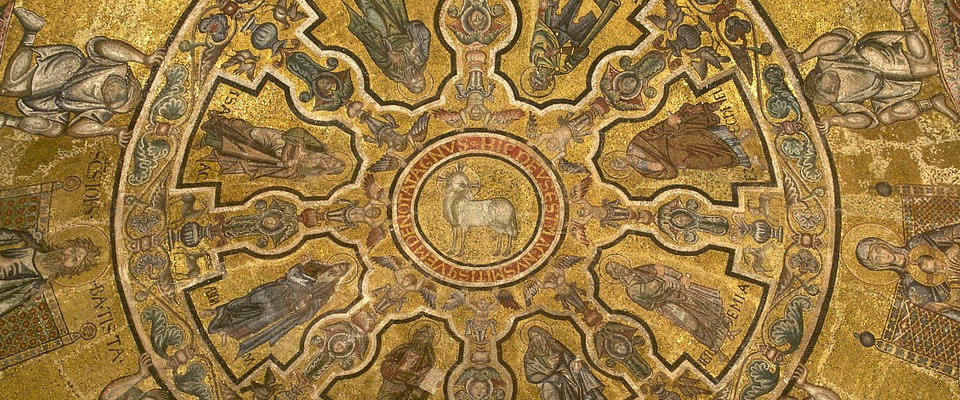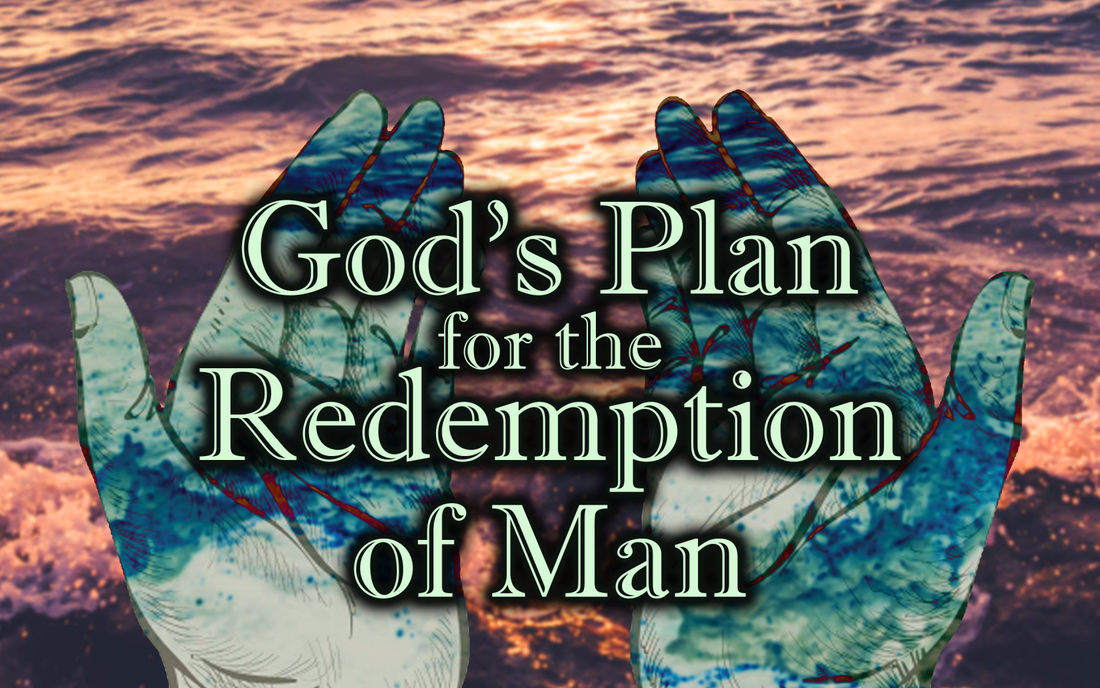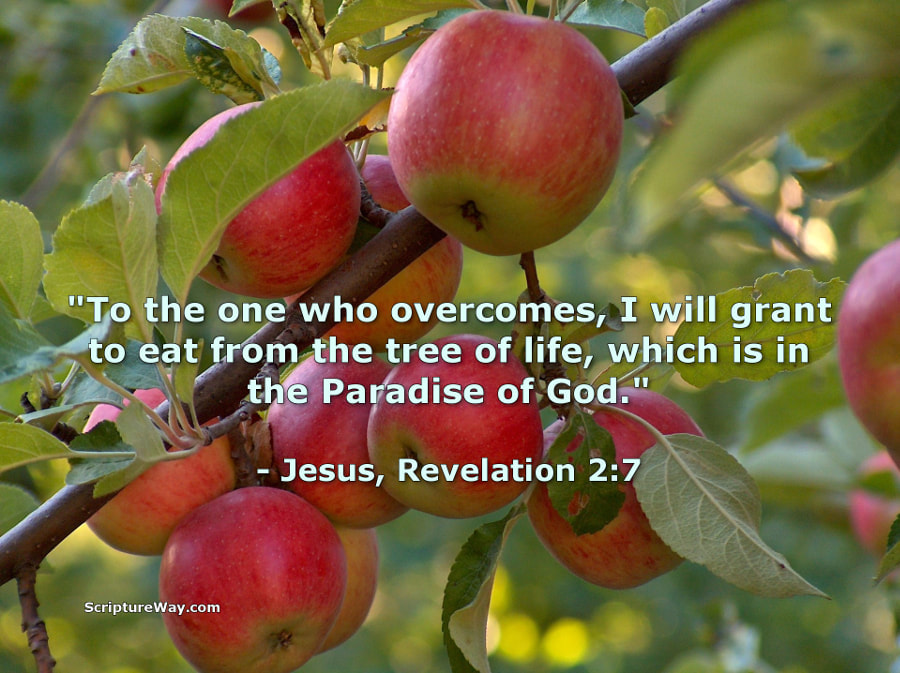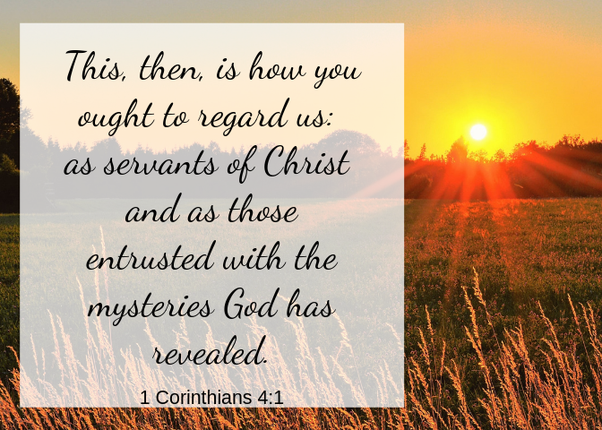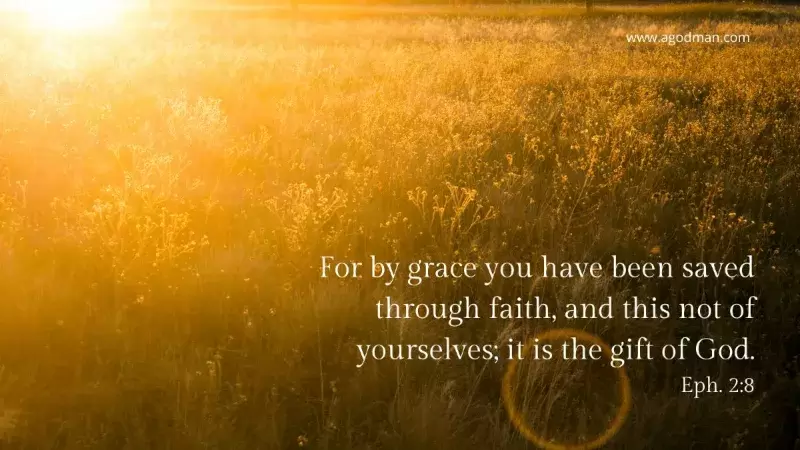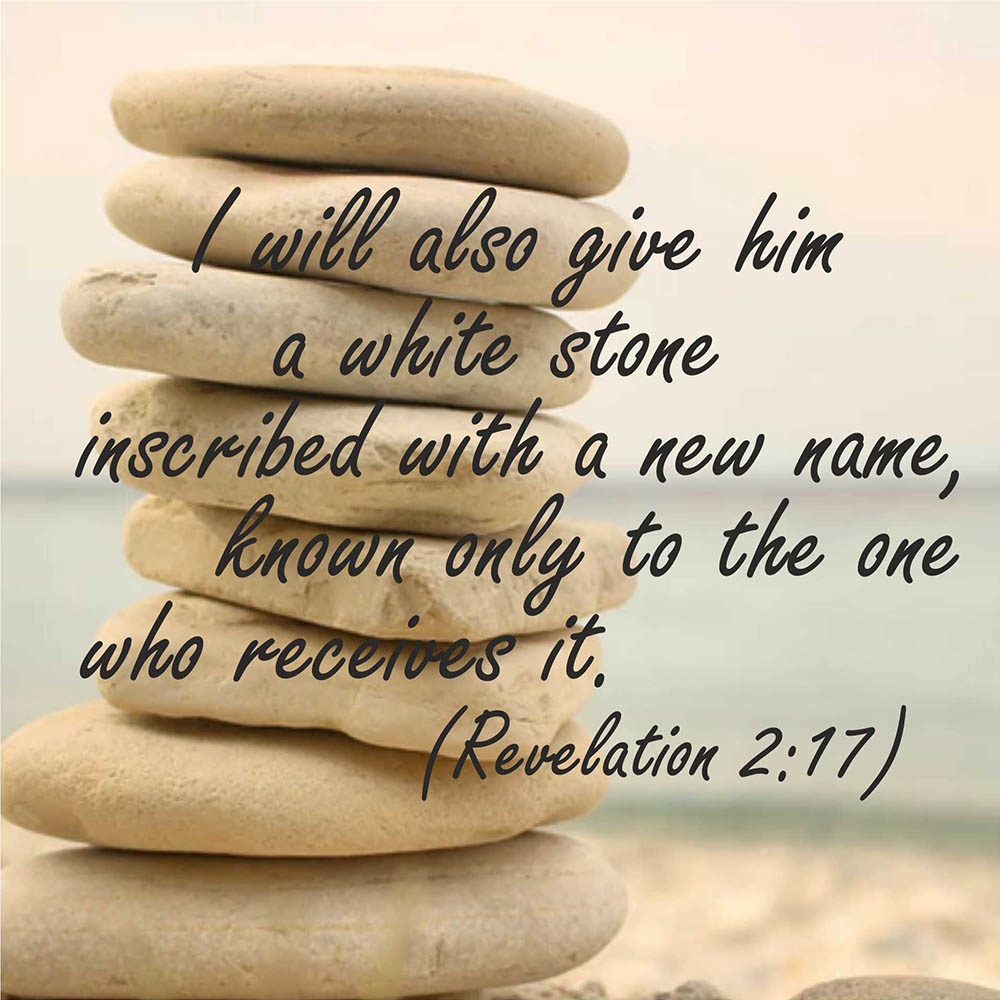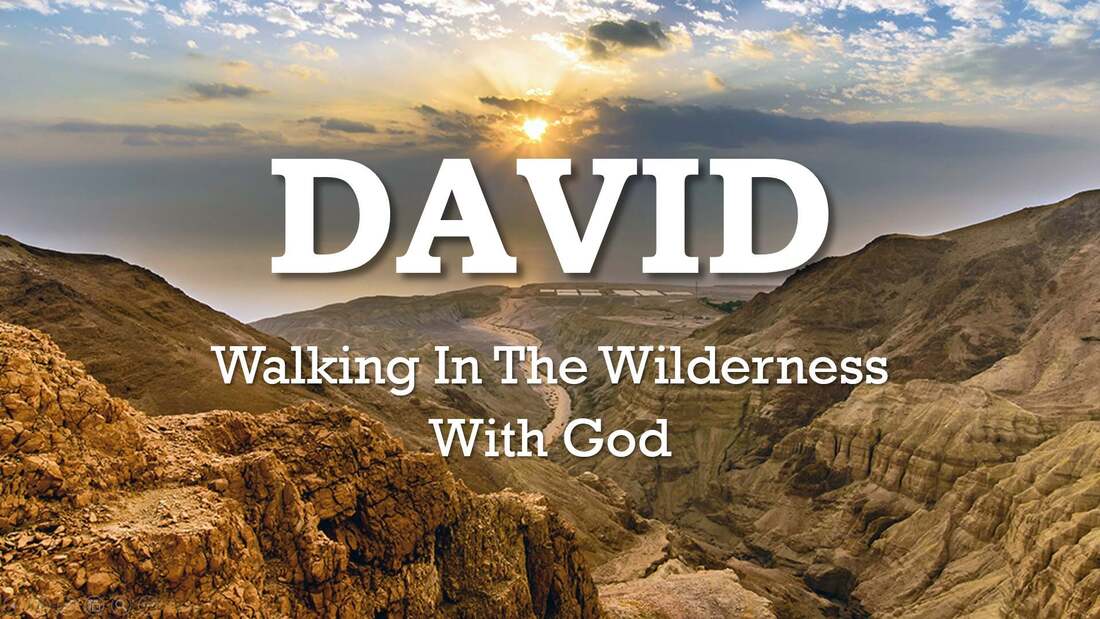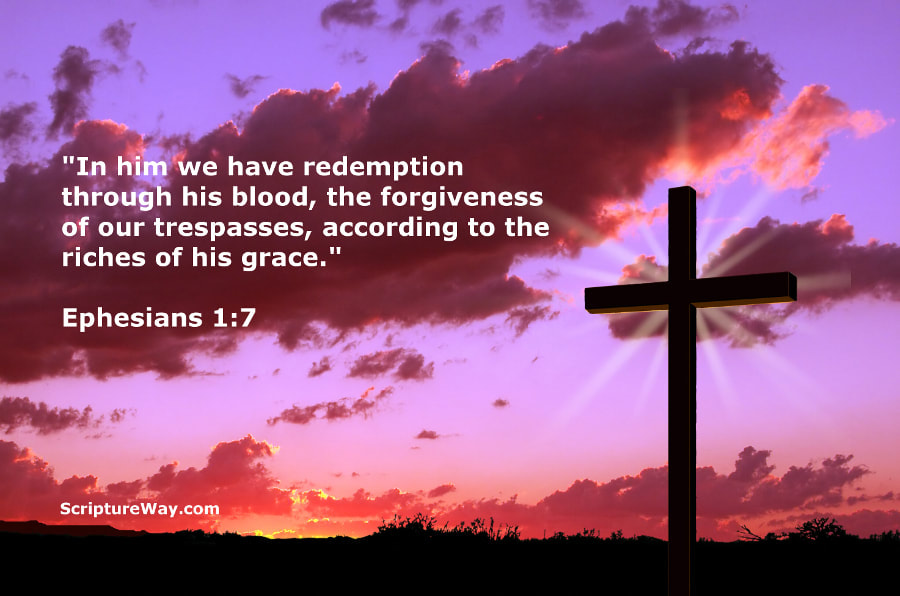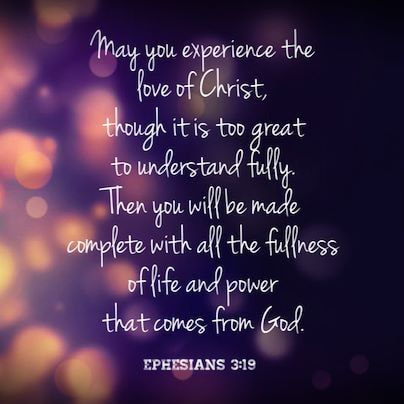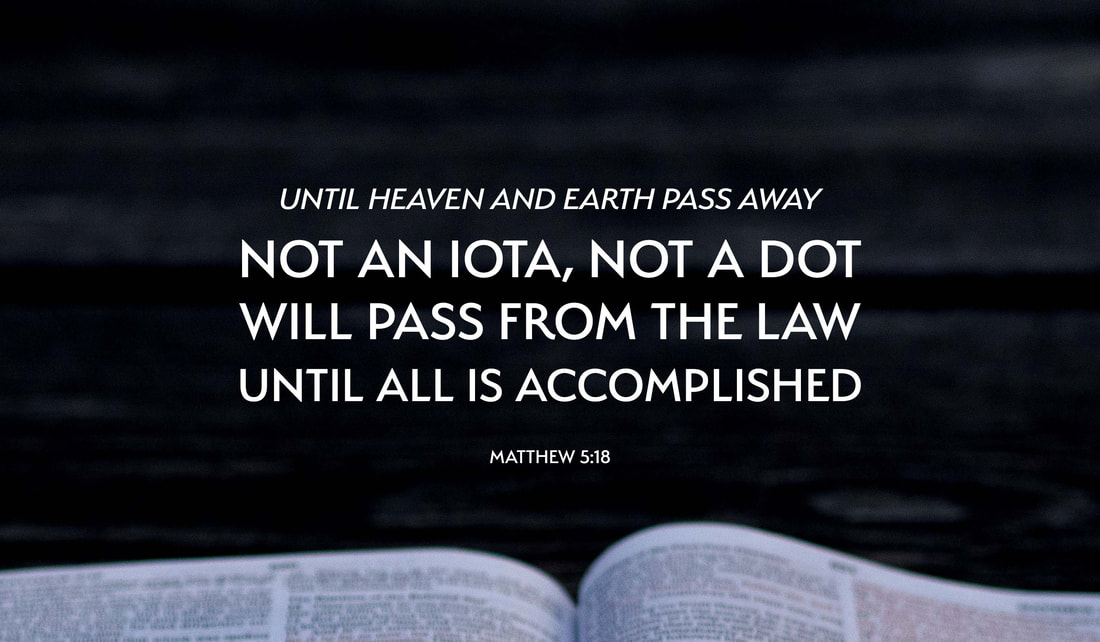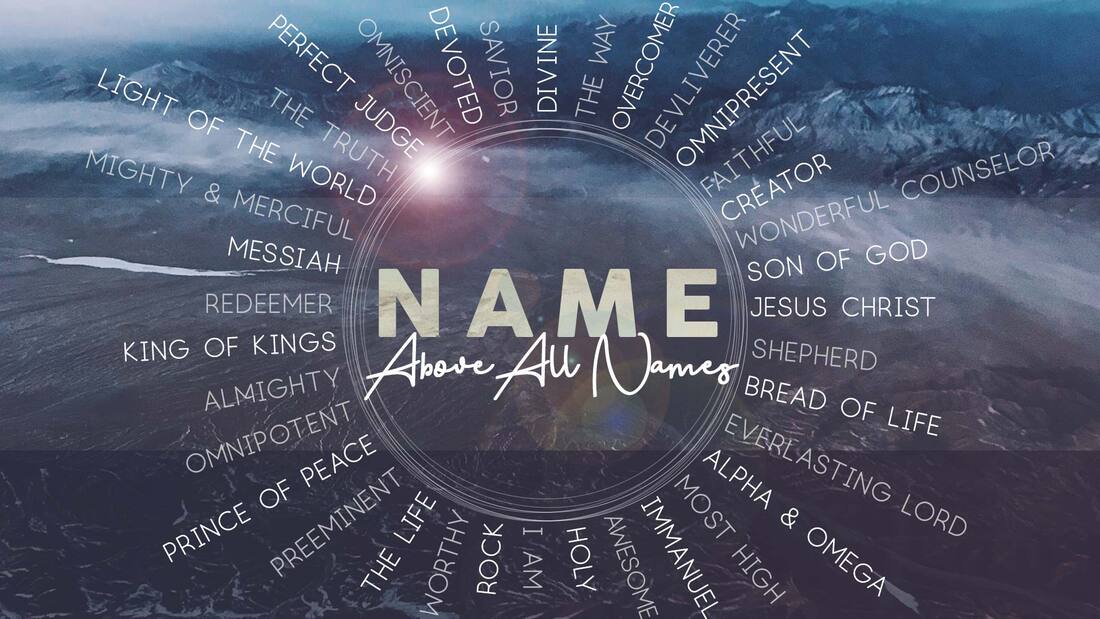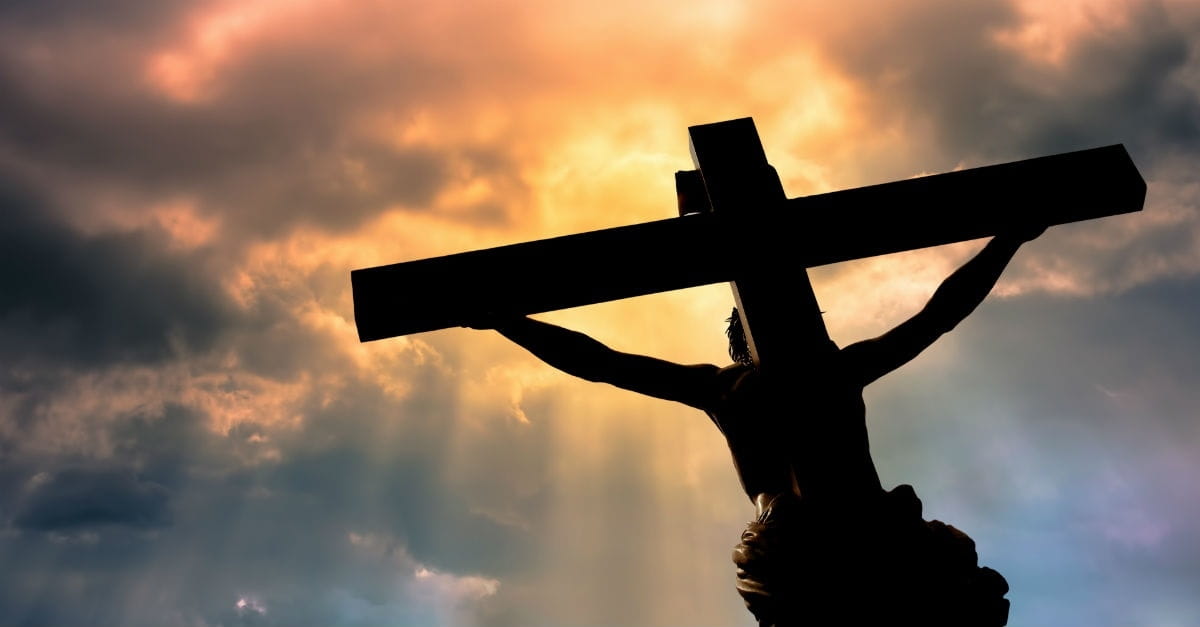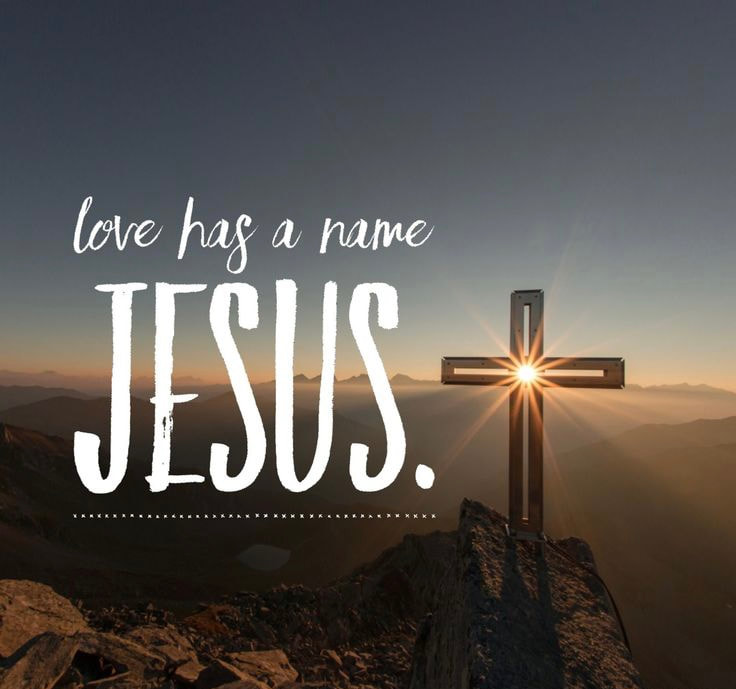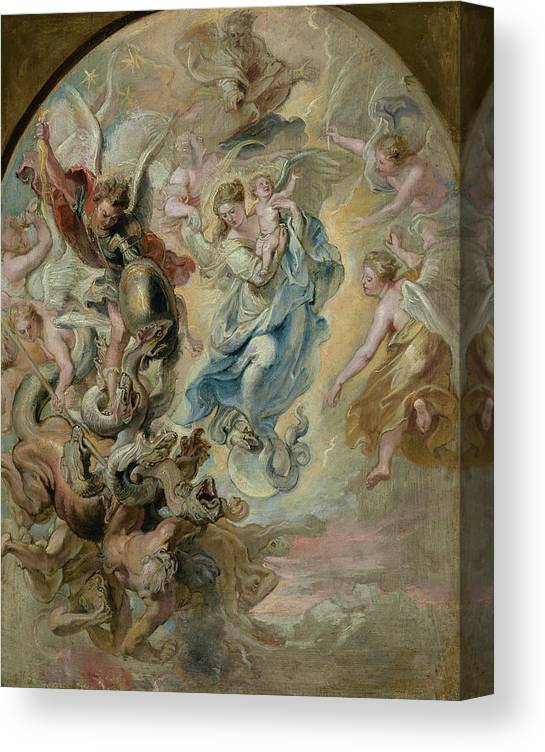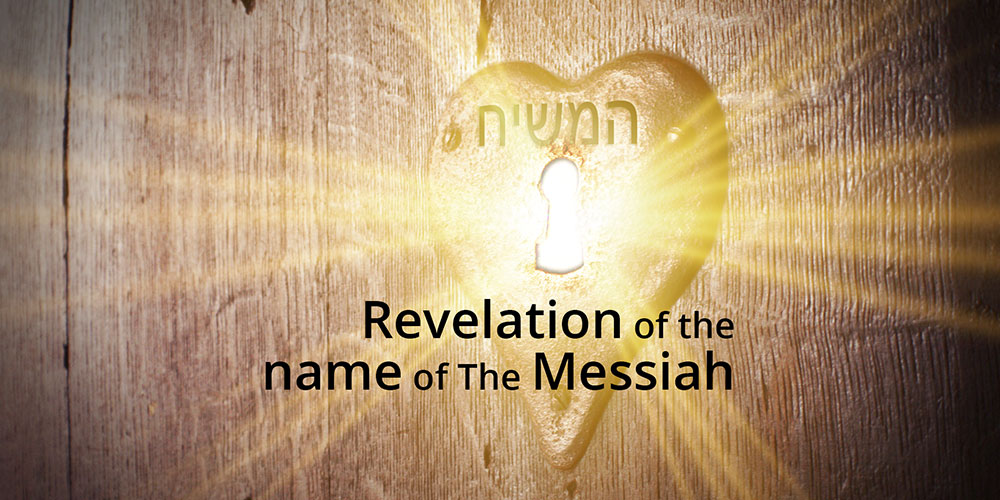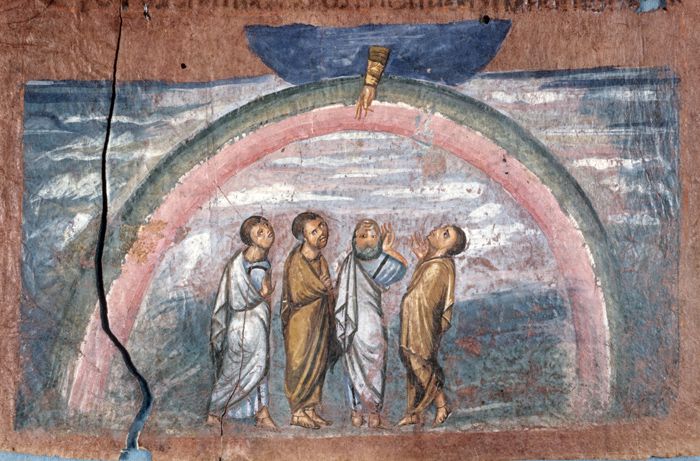The Parable
of the
Mustard Seed
“The kingdom of Heaven
is like a
mustard SEED,
which a
man took and planted
in his field
Though it is the smallest of all seeds,
yet
when it grows,
it is the largest of garden plants
and
becomes a tree,
so that the birds come
and
perch in its branches”
(Matthew 13:31–32)
One of the possible practical reasons that Jesus used parables such as this is that, by depicting concepts in word pictures, the message is not readily lost to changes in word usage, technology, cultural context, or the passage of time. Literal, detailed narratives are more susceptible to becoming archaic or obsolescent. Two thousand years later, the imagery is still vivid. We can still understand the concept of a growing seed. Jesus’ parables are brilliant in their simplicity. This storytelling approach also promotes practicing principles rather than inflexible adherence to laws.
The Parable of the Mustard Seed is contained in all three of the Synoptic Gospels (Matthew 13:31–32; Mark 4:30–32; Luke 13:18–19). In this parable, Jesus predicts the amazing growth of the kingdom of heaven. The mustard seed is quite small, but it grows into a large shrub—up to ten feet in height—and Jesus says this is a picture of kingdom growth. The point of the Parable of the Mustard Seed is that something big and blessed—the kingdom of God—had humble beginnings. How significant could the short ministry of Christ be? He had but a handful of followers, He was a man of no rank and without means, and He lived in what everyone considered a backwater region of the world. The life and death of Christ did not catch the world’s attention any more than a mustard seed would lying on the ground by the road. But this was a work of God. What seemed inconsequential at first grew into a movement of worldwide influence, and no one could stop it (see Acts 5:38–39). The influence of the kingdom in this world would be such that everyone associated with it would find a benefit—pictured as the birds perched on the branches of the mature mustard plant.
Elsewhere in Scripture, the kingdom of God is also pictured as a tree. A passage in Ezekiel, for example, parallels the Parable of the Mustard Seed in many ways. In this prophecy, the Lord God promises to plant a shoot “on a high and lofty mountain” (Ezekiel 17:22). This small sprig “will produce branches and bear fruit and become a splendid cedar. Birds of every kind will nest in it; they will find shelter in the shade of its branches”
(Ezekiel 17:23)
This messianic prophecy foretells
the growth of
Christ’s Spiritual kingdom
from very small
beginnings to a sizable, sheltering place
Some have wondered why, in the
Parable of the Mustard Seed,
Jesus calls the mustard seed the “smallest” of seeds and the mature mustard plant the “largest” of plants in the garden, when there were smaller seeds and larger plants. The answer is that Jesus is using rhetorical hyperbole—an exaggeration to make a point.
He is not speaking botanically but proverbially.
Jesus’ emphasis
is on the change of size—from small to large--
and the surprising nature of the growth.
The history of the church has shown
Jesus’ Parable of the Mustard Seed to be
true
the church has flourished.
And it’s only a small picture of the
ultimate manifestation
of the
kingdom of God,
when Jesus returns to earth to
rule and reign from
Zion
Faith
resides at the core of
Christianity and the Christian life.
A biblical definition of
faith reaches beyond
mere belief--
the
simple acknowledgment that God exists--
into the realm of trust
GENUINE faith involves
abandoning all human reliance
on SELF-efforts
and
placing total dependence upon
God’s character,
His actions, and His promises,
as
REVEALED in His Word
Faith has many dimensions.
One crucial facet of faith is defined in
Hebrews 11:1:
"Now faith is confidence
in what
we hope for and
ASSURANCE about
what
we do not see.”
Biblical faith takes present-day possession of things not yet seen
with our eyes but hoped for in the future.
What God has revealed in His Word becomes our inner reality today.
Rather than looking at life with our earthly eyes, faith
sees through the lens of God’s promises.
The apostle Paul said,
'We walk by faith and not sight” (2 Corinthians 5:7)
Faith does not put trust in bank account balances,
headline news, or the doctor’s report.
“We don’t look at the troubles we can see now; rather,
we fix our gaze on things that cannot be seen.
For the things we see now will soon be gone,
but the things
we cannot see will last forever”
(2 Corinthians 4:18, NLT)
When THE WORLD
seems to be falling apart,
our
faith stands secure on
the
rock-solid, trustworthy
Promises of God
and
His Word
Faith begins with God.
It is His gift, not the result of any human effort
or achievement.
God initiates the relationship between Himself
and humans by revealing Himself to them
(Ecclesiastes 3:11; Romans 1:19–20)
and lovingly persuading them to come to Him (Romans 2:4; 2 Peter 3:9; Isaiah 30:18),
just as Jesus called the disciples to follow Him (Matthew 4:18–22).
But then God expects us to respond to Him in faith:
"And it is impossible
to please God without faith.
Anyone who wants
to come to him must believe
that
God exists and that
he rewards those who
sincerely seek him”
(Hebrews 11:6, NLT)
Failure to trust God was at the heart of the first sin
(Genesis 3:1–7)
Ever since the fall of man, God has been
calling people back
to faith—to a place of
trust
and obedience to Him
Faith
is and always has been the
only means of salvation
In the Old Testament, the covenantal bond was the believer’s expression of faith. God initiated the covenant, and believers responded in faith, actively obeying His Word and trusting in the Lord to fulfill His promises. In
Genesis 15:6, Abraham
“believed the Lord, and the Lord counted
him as righteous because of his faith”
(NLT; see also Romans 4:22; Galatians 3:6).
The prophet states,
"Look at the proud! They trust in themselves,
and their lives are crooked.
But the righteous
will live by their faithfulness to God”
(Habakkuk 2:4, NLT)
In the New Testament,
it is by faith that people receive
God’s grace in Jesus Christ
and,
through Him, the Gift of salvation
(Ephesians 2:8–9)
Paul emphasized the centrality of faith in the believer’s life:
“For I am NOT ashamed
of this
Good News about Christ
It is the
POWER of GOD at WORK
SAVING
everyone who believes--
the Jew first and also the Gentile.
This
Good News tells us how
God makes us RIGHT in his sight.
This is accomplished from start to finish by FAITH
As the Scriptures say,
‘It is through faith that a righteous person has life’”
(Romans 1:16–17, NLT; see also Romans 3:27–28; 10:9–10)
Faith results in numerous blessings and benefits.
At the top of the list are the
gifts of salvation, justification, and peace with God
(Romans 5:1–2; Galatians 2:15–16; 1 Peter 1:8–9)
Jesus makes His home in our hearts through faith (Ephesians 3:17).
We receive forgiveness of sin (Acts 10:43; Luke 7:48–50),
adoption into God’s family (John 1:12; Galatians 3:26),
God’s protection and power (1 Peter 1:5; Matthew 17:20; Luke 8:43–48),
freedom to draw near to God with a clean conscience (Ephesians 3:12; Hebrews 10:22),
reconciliation (2 Corinthians 5:18),
sanctification (Acts 26:17–18), and
a new life in Jesus Christ (Galatians 2:20), all
through faith
Moreover, we are granted victory over death and eternal life
(John 3:16, 36; 5:24; 6:40, 47; 11:25–27).
The Bible plainly teaches that faith is not just a mental attitude. James explains that saving faith is revealed in a person’s actions. He writes, “What good is it, dear brothers and sisters, if you say you have faith but don’t show it by your actions? Can that kind of faith save anyone?” (James 2:14, NLT). James is not saying that we are saved by works, but that faith and good deeds go together: “Just as the body is dead without breath, so also faith is dead without good works” (James 2:26, NLT). Good works are proof that our faith is alive.
A biblical concept of faith includes believing that God exists and that He is wholly trustworthy, so much so that we base our lives on Him and His Word, doing what it says, no matter what our physical eyes tell us. Through faith in Jesus Christ, we obtain “the victory that has overcome the world” (1 John 5:4–5).
Thankfully, the Bible contains a clear definition of
faith in Hebrews 11:1:
“Now faith is the assurance of things hoped for,
the
conviction of things not seen.”
Simply put, the biblical definition of faith is
“trusting in something you cannot explicitly prove.”
This definition of faith contains two aspects: intellectual assent and trust. Intellectual assent is believing something to be true. Trust is actually relying on the fact that the something is true. A chair is often used to help illustrate this. Intellectual assent is recognizing that a chair is a chair and agreeing that it is designed to support a person who sits on it. Trust is actually sitting in the chair.
Understanding these two aspects of faith is crucial. Many people believe certain facts about Jesus Christ. Many people will intellectually agree with the facts the Bible declares about Jesus. But knowing those facts to be true is not what the Bible means by “faith.” The biblical definition of faith requires intellectual assent to the facts and trust in the facts.
Believing that Jesus is God incarnate who died on the cross to pay the penalty for our sins and was resurrected is not enough. Even the demons “believe” in God and acknowledge those facts (cf. James 2:19). We must personally and fully rely on the death of Christ as the atoning sacrifice for our sins. We must “sit in the chair” of the salvation that Jesus Christ has provided. This is saving faith. The faith God requires of us for salvation is belief in what the Bible says about who Jesus is and what He accomplished and fully trusting in Jesus for that salvation (Acts 16:31). Biblical faith is always accompanied by repentance (Matthew 21:32; Mark 1:15).
The biblical definition of faith does not apply only to salvation. It is equally applicable to the rest of the Christian life. We are to believe what the Bible says, and we are to obey it. We are to believe the promises of God, and we are to live accordingly. We are to agree with the truth of God’s Word, and we are to allow ourselves to be transformed by it (Romans 12:2).
Why is this definition of faith so important? Why must trust accompany agreeing with facts? Because “without faith, it is impossible to please God” (Hebrews 11:6). Without faith, we cannot be saved (John 3:16). Without faith, the Christian life cannot be what God intends it to be (John 10:10).
Jesus had just finished
explaining to the disciples the meaning of
the
Parable of the Wheat and the Tares,
and these two short parables are a continuance of His discussion of
The “kingdom of heaven.”
He expressed TRUTHS
about the spiritual kingdom
in three
pairs of parables in
Matthew 13: the seed and the sower (vv. 3-23)
and the weeds in the field (vv. 24-30);
the mustard seed (vv. 31-32) and the leaven;
and the hidden treasure (v. 44)
and the pearl of great price (vv. 45-46)
The similarities of these two short parables make it clear they teach the same lesson--
the
kingdom of heaven
is of
inestimable value.
Both parables involve
a man who sold all he had
to possess the kingdom.
The treasure and the pearl
represent Jesus Christ
and the salvation He offers.
And while we
cannot pay for salvation
by selling
all our worldly goods,
once we have found the prize,
we are
willing to give up everything
to possess it.
But what is attained in exchange is so much more valuable that it is comparable to
trading an ounce of trash for a ton of diamonds
(Philippians 3:7-9)
In both parables, the treasures
are HIDDEN,
indicating that
spiritual TRUTH
is MISSED
by many and cannot be
found by
intelligence or power
or
worldly wisdom
Matthew 13:11-17 and 1 Corinthians 2:7-8, 14
make it clear that
the mysteries of the kingdom are
hidden from some
who are unable to
hear, see,
and comprehend these
TRUTHS
The disobedient
reap the natural consequences
of their
unbelief--spiritual blindness
Those whose eyes are opened
by the Spirit
do discern spiritual truth,
and they, like the men
in the parable,
understand its great value
Notice that the merchant stopped seeking pearls when
he found
the pearl of great price.
Eternal life,
the incorruptible inheritance,
and the
love of God through Christ
constitute the pearl which,
once found,
makes further searching unnecessary.
Christ fulfills our greatest needs,
satisfies our longings,
makes us whole and clean before God,
calms and quiets our hearts, and gives us
hope for the future.
The “great price,” of course, is that
which was
paid by Christ for our redemption.
He emptied Himself of His glory,
came to earth in the
form of a lowly man
and shed His precious blood on
the cross to
pay the penalty for our sins.
The Example of
Abraham
So what can we say about Abraham, the father of our people? What did he learn about faith? 2 If Abraham was made right by the things he did, he had a reason to boast about himself. But God knew different. 3 That’s why the Scriptures say, “Abraham believed God, and because of this he was accepted as one who is right with God."
4 When people work, their pay is not given to them as a gift. They earn the pay they get. 5 But people cannot do any work that will make them right with God. So they must trust in him. Then he accepts their faith, and that makes them right with him. He is the one who makes even evil people right. 6 David said the same thing when he was talking about the blessing people have when God accepts them as good without looking at what they have done:
7 “It is a great blessing
when people are forgiven for the wrongs they have done,
when their sins are erased!
8 It is a great blessing when the Lord accepts people
as if they are without sin!”
9 Is this blessing only for those who are circumcised? Or is it also for those who are not circumcised? We have already said that it was because of Abraham’s faith that he was accepted as one who is right with God. 10 So how did this happen? Did God accept Abraham before or after he was circumcised? God accepted him before his circumcision. 11 Abraham was circumcised later to show that God accepted him. His circumcision was proof that he was right with God through faith before he was circumcised. So Abraham is the father of all those who believe but are not circumcised. They believe and are accepted as people who are right with God. 12 And Abraham is also the father of those who have been circumcised. But it is not their circumcision that makes him their father. He is their father only if they live following the faith that our father Abraham had before he was circumcised.
God’s Promise Received Through Faith13 Abraham and his descendants received the promise that they would get the whole world. But Abraham did not receive that promise because he followed the law. He received that promise because he was right with God through his faith. 14 If people could get God’s promise by following the law, then faith is worthless. And God’s promise to Abraham is worthless, 15 because the law can only bring God’s anger on those who disobey it. But if there is no law, then there is nothing to disobey.
16 So people get what God promised by having faith. This happens so that the promise can be a free gift. And if the promise is a free gift, then all of Abraham’s people will get that promise. The promise is not just for those who live under the Law of Moses. It is for all who live with faith as Abraham did. He is the father of us all. 17 As the Scriptures say, “I have made you a father of many nations.”[b] This is true before God, the one Abraham believed—the God who gives life to the dead and speaks of things that don’t yet exist as if they are real.
18 There was no hope that Abraham would have children, but Abraham believed God and continued to hope. And that is why he became the father of many nations. As God told him, “You will have many descendants.”[c] 19 Abraham was almost a hundred years old, so he was past the age for having children. Also, Sarah could not have children. Abraham was well aware of this, but his faith in God never became weak. 20 He never doubted that God would do what he promised. He never stopped believing. In fact, he grew stronger in his faith and just praised God. 21 Abraham felt sure that God was able to do what he promised. 22 So that’s why “he was accepted as one who is right with God.”[d] 23 These words (“he was accepted”) were written not only for Abraham. 24 They were also written for us. God will also accept us because we believe. We believe in the one who raised Jesus our Lord from death. 25 Jesus was handed over to die for our sins, and he was raised from death to make us right with God.
Paul is discussing
God's Promises
to
Abraham and his offspring,
the Jewish people
These were given by God in Genesis 12:1–3. Those promises, Paul has written, amount to Israel being heirs of the world. Now Paul shows that this inheritance will not come by following the law. First and foremost, those promises were given centuries before the law existed. Paul writes that if the inheritance is to be given to those who follow the law, then faith does not matter. Worse, the promises of God don't matter—because not all of Abraham's descendants had the law!
In other words, Paul has already shown that nobody can keep the law. All have sinned and fallen short of God's glory (Romans 3:10; 3:23). So if God's promises to Israel are only for those able to follow the law, those promises will not be given. When law is a requirement for salvation, faith serves no purpose.
Romans 1
Greetings from Paul
1This letter is from Paul, a slave of Christ Jesus, chosen by God to be an apostle and sent out to preach his Good News. 2God promised this Good News long ago through his prophets in the holy Scriptures. 3The Good News is about his Son. In his earthly life he was born into King David’s family line, 4and he was shown to be the Son of God when he was raised from the dead by the power of the Holy Spirit. He is Jesus Christ our Lord. 5Through Christ, God has given us the privilege and authority as apostles to tell Gentiles everywhere what God has done for them, so that they will believe and obey him, bringing glory to his name.
6And you are included among those Gentiles who have been called to belong to Jesus Christ. 7I am writing to all of you in Rome who are loved by God and are called to be his own holy people.
May God our Father and the Lord Jesus Christ give you grace and peace.
God’s Good News
8Let me say first that I thank my God through Jesus Christ for all of you, because your faith in him is being talked about all over the world. 9God knows how often I pray for you. Day and night I bring you and your needs in prayer to God, whom I serve with all my heart by spreading the Good News about his Son.
10One of the things I always pray for is the opportunity, God willing, to come at last to see you. 11For I long to visit you so I can bring you some spiritual gift that will help you grow strong in the Lord. 12When we get together, I want to encourage you in your faith, but I also want to be encouraged by yours.
13I want you to know, dear brothers and sisters, that I planned many times to visit you, but I was prevented until now. I want to work among you and see spiritual fruit, just as I have seen among other Gentiles. 14For I have a great sense of obligation to people in both the civilized world and the rest of the world, to the educated and uneducated alike. 15So I am eager to come to you in Rome, too, to preach the Good News.
16For I am not ashamed of this Good News about Christ. It is the power of God at work, saving everyone who believes—the Jew first and also the Gentile. 17This Good News tells us how God makes us right in his sight. This is accomplished from start to finish by faith. As the Scriptures say, “It is through faith that a righteous person has life.”
God’s Anger at Sin
18But God shows his anger from heaven against all sinful, wicked people who suppress the truth by their wickedness. 19They know the truth about God because he has made it obvious to them. 20For ever since the world was created, people have seen the earth and sky. Through everything God made, they can clearly see his invisible qualities—his eternal power and divine nature. So they have no excuse for not knowing God.
21Yes, they knew God, but they wouldn’t worship him as God or even give him thanks. And they began to think up foolish ideas of what God was like. As a result, their minds became dark and confused. 22Claiming to be wise, they instead became utter fools. 23And instead of worshiping the glorious, ever-living God, they worshiped idols made to look like mere people and birds and animals and reptiles.
24So God abandoned them to do whatever shameful things their hearts desired. As a result, they did vile and degrading things with each other’s bodies. 25They traded the truth about God for a lie. So they worshiped and served the things God created instead of the Creator himself, who is worthy of eternal praise! Amen. 26That is why God abandoned them to their shameful desires. Even the women turned against the natural way to have sex and instead indulged in sex with each other. 27And the men, instead of having normal sexual relations with women, burned with lust for each other. Men did shameful things with other men, and as a result of this sin, they suffered within themselves the penalty they deserved.
28Since they thought it foolish to acknowledge God, he abandoned them to their foolish thinking and let them do things that should never be done. 29Their lives became full of every kind of wickedness, sin, greed, hate, envy, murder, quarreling, deception, malicious behavior, and gossip. 30They are backstabbers, haters of God, insolent, proud, and boastful. They invent new ways of sinning, and they disobey their parents. 31They refuse to understand, break their promises, are heartless, and have no mercy. 32They know God’s justice requires that those who do these things deserve to die, yet they do them anyway. Worse yet, they encourage others to do them, too.
Abraham Receives the Promise
…15because the law brings wrath. And where there is no law, there is no transgression. 16Therefore, the promise comes by faith, so that itmay rest on grace and may be guaranteed to allAbraham’s offspring-- not only to those who are ofthe law, but also to those who are of the faith of Abraham. He is the father of us all. 17As it is written: “I have made you a father of many nations.” He is our father in the presence of God, in whom he believed, the God who gives life to the dead and calls into being what does not yet exist.…
Luke 19:9
Jesus said to him, "Today salvation has come to this house, because this man too is a son of Abraham.
Romans 3:22
And this righteousness from God comes through faith in Jesus Christ to all who believe. There is no distinction,
Romans 3:24
and are justified freely by His grace through the redemption that is in Christ Jesus.
Romans 3:30
since there is only one God, who will justify the circumcised by faith and the uncircumcised through that same faith.
Romans 4:11
And he received the sign of circumcision as a seal of the righteousness that he had by faith while he was still uncircumcised. So then, he is the father of all who believe but are not circumcised, in order that righteousness might be credited to them.
Romans 9:8
So it is not the children of the flesh who are God's children, but it is the children of the promise who are regarded as offspring.
Romans 15:8
For I tell you that Christ has become a servant of the circumcised on behalf of God's truth, to confirm the promises made to the patriarchs,
Therefore it is of faith, that it might be by grace; to the end the promise might be sure to all the seed; not to that only which is of the law, but to that also which is of the faith of Abraham; who is the father of us all,
Romans 3:24-26
Being justified freely by his grace through the redemption that is in Christ Jesus: …
Romans 5:1
Therefore being justified by faith, we have peace with God through our Lord Jesus Christ:
Galatians 3:7-12,22
Know ye therefore that they which are of faith, the same are the children of Abraham…
the promise.
Hebrews 6:13-19
For when God made promise to Abraham, because he could swear by no greater, he sware by himself, …
2 Peter 1:10
Wherefore the rather, brethren, give diligence to make your calling and election sure: for if ye do these things, ye shall never fall:
but to.
Romans 4:11
And he received the sign of circumcision, a seal of the righteousness of the faith which he had yetbeing uncircumcised: that he might be the father of all them that believe, though they be not circumcised; that righteousness might be imputed unto them also:
the father.
Romans 9:8
That is, They which are the children of the flesh, these are not the children of God: but the children of the promise are counted for the seed.
Isaiah 51:2
Look unto Abraham your father, and unto Sarah that bare you: for I called him alone, and blessed him, and increased him.
The prophet Joel
delivers a
warning to the people of Judah,
but his message transcends his time to speak to people of all time—past, current, and future. He tells of God’s looming judgment of sin and urges people everywhere to repent and return to God. Joel foresees the day when God’s Spirit becomes available to every believer: “I will pour out my Spirit on all people. Your sons and daughters will prophesy, your old men will dream dreams, your young men will see visions. Even on my servants, both men and women, I will pour out my Spirit in those days. . . . And everyone who calls on the name of the LORD will be saved” (Joel 2:28–32).
The apostle Peter quotes this entire passage from Joel in Acts 2:14–21 to illustrate the manifestation of the Holy Spirit on the Day of Pentecost: “Suddenly a sound like the blowing of a violent wind came from heaven and filled the whole house where they were sitting. They saw what seemed to be tongues of fire that separated and came to rest on each of them. All of them were filled with the Holy Spirit and began to speak in other tongues as the Spirit enabled them” (Acts 2:2–4).
Peter sees this post-resurrection outpouring of the Spirit as part of the fulfillment of Joel’s prophecy. With its breathtaking signs and wonders in the heavens and on earth, the complete prophecy will not be fulfilled until the last days. But God’s Spirit was poured out on Pentecost in a fresh way and remains available to all who call on the name of the Lord.
Calling on the name of the Lord expresses familiarity and connection, as in knowing God by name. The phrase signifies identification as a member of God’s family. Whoever calls on the name of the Lord claims Yahweh as one’s own God. This concept goes back to the beginning of time when “people began to call on the name of the Lord” (Genesis 4:26; see also Genesis 12:8). God has always sought a people, including representatives from all nations, to devote themselves to Him.
The apostle Paul cites Joel to back his claim that the message of salvation in Jesus Christ is for all people: “For there is no difference between Jew and Gentile—the same Lord is Lord of all and richly blesses all who call on him, for, ‘Everyone who calls on the name of the Lord will be saved’” (Romans 10:12–13). Jews and Gentiles and people from every nation receive God’s promise of salvation on the same basis—through faith in Jesus Christ. No one is excluded. Everyone has an opportunity to call on the name of the Lord and be delivered from sin, forgiven, and saved (Acts 10:43).
Paul emphasizes calling on the name of the Lord out loud but also in one’s heart: “If you declare with your mouth, ‘Jesus is Lord,’ and believe in your heart that God raised him from the dead, you will be saved” (Romans 10:9). Calling on the name of the Lord involves admitting our own powerlessness and need for God, believing in His power to save us, and desperately crying out to God from the heart for His salvation (Isaiah 43:11; Acts 4:12; Hebrews 12:14; Romans 3:10–18, 23). Those who call on the name of the Lord put their “hope in the living God, who is the Savior of all people, and especially of those who believe” (1 Timothy 4:10). God’s children cry out from a sense of inadequacy, dependence, and the genuine conviction that only He can be relied on to save.
Whoever trusts in Jesus Christ by believing in Him shall be saved (Acts 16:31). There’s nothing complicated about the plan of salvation: “For God so loved the world that he gave his one and only Son, that whoever believes in him shall not perish but have eternal life. For God did not send his Son into the world to condemn the world, but to save the world through him” (John 3:16–17).
The Bible plainly teaches that we don’t have to do any work to be saved (Ephesians 2:8–9). Calling on the name of the Lord is not an act that saves us. God’s grace saves us through faith. We can’t earn salvation by any means. The grace of God is the source of our salvation, and we receive that grace through faith. We call on God as an expression of faith (Romans 5:1)
And, as
New creatures
in Christ,
we will call on
the
NAME
of our
Lord and Savior
as long as we
LIVE
(Psalm 116:2).
Paul adds that the
New Self is
constantly refreshed
through knowledge
of the
One who Created it:
Christ.
Knowledge which
comes
from Christ
is noted throughout Colossians
as an
important part of the Christian life
(Colossians 1:9–10; Colossians 2:2–3)
Paul Confronts Cephas
…for through
the law I DIED to the LAW
so that
I might LIVE to GOD
I have been crucified
WITH CHRIST,
and I no
longer live,
but Christ LIVES IN me
The life I live in the body,
I live by FAITH in the Son-of God,
who LOVED me and GAVE Himself
UP for me
21I do not set aside the
GRACE of God
For if righteousness comes through
the law,
Christ died for nothing.…
Song of Solomon 7:10
I belong to my beloved, and his desire is for me
Matthew 4:3
The tempter came to Him and said, "If You are the Son of God, tell these stones to become bread."
Romans 3:22
And this righteousness from God comes through faith in Jesus Christ to all who believe. There is no distinction,
Romans 4:25
He was delivered over to death for our trespasses and was raised to life for our justification.
Romans 5:6
For at just the right time, while we were still powerless, Christ died for the ungodly.
Romans 5:8
But God proves His love for us in this: While we were still sinners, Christ died for us.
Romans 6:6
We know that our old self was crucified with Him so that the body of sin might be rendered powerless, that we should no longer be slaves to sin.
I am crucified with Christ:
nevertheless I live;
yet not I, but Christ lives in me:
and the life which I now live
in the flesh
I live by the faith of the Son of God,
who loved me,
and gave himself for me
Galatians 5:24
And they that are Christ's have crucified the flesh with the affections and lusts.
Galatians 6:14
But God forbid that I should glory, save in the cross of our Lord Jesus Christ, by whom the world is crucified unto me, and I unto the world.
Romans 6:4-6
Therefore we are buried with him by baptism into death: that like as Christ was raised up from the dead by the glory of the Father, even so we also should walk in newness of life…
nevertheless.
Romans 6:8,13
Now if we be dead with Christ, we believe that we shall also live with him: …
Romans 8:2
For the law of the Spirit of life in Christ Jesus hath made me free from the law of sin and death.
Ephesians 2:4,5
But God, who is rich in mercy, for his great love wherewith he loved us, …
but.
John 14:19,20
Yet a little while, and the world seeth me no more; but ye see me: because I live, ye shall live also…
John 17:21
That they all may be one; as thou, Father, art in me, and I in thee, that they also may be one in us: that the world may believe that thou hast sent me.
2 Corinthians 4:10,11
Always bearing about in the body the dying of the Lord Jesus, that the life also of Jesus might be made manifest in our body…
the life.
2 Corinthians 4:11
For we which live are alway delivered unto death for Jesus' sake, that the life also of Jesus might be made manifest in our mortal flesh.
2 Corinthians 10:3
For though we walk in the flesh, we do not war after the flesh:
1 Peter 4:1,2
Forasmuch then as Christ hath suffered for us in the flesh, arm yourselves likewise with the same mind: for he that hath suffered in the flesh hath ceased from sin; …
I now.
Galatians 2:16
Knowing that a man is not justified by the works of the law, but by the faith of Jesus Christ, even we have believed in Jesus Christ, that we might be justified by the faith of Christ, and not by the works of the law: for by the works of the law shall no flesh be justified.
Galatians 3:11
But that no man is justified by the law in the sight of God, it is evident: for, The just shall live by faith.
John 6:57
As the living Father hath sent me, and I live by the Father: so he that eateth me, even he shall live by me.
Just as Christ is
"the image of the invisible God"
(Colossians 1:15),
believers are being remade into
the likeness of Jesus.
Christ is "the image of God"
(2 Corinthians 4:4)
Jesus is also FULLY involved in creation
(Colossians 1:16).
John 1:3 says,
"ALL things were made
through HIM,
and without him
was not any
thing made that was made."
The believer
is a new person
INCREASINGLY designed to
Grow more like Christ,
the one
who CREATED us
I am my beloved's,
And his desire is toward me
Come, my beloved,
Let us go forth to the field;
Let us lodge in the villages.
Let us get up early to the vineyards;
Let us see if the vine has budded,
Whether the grape blossoms are open,
And the pomegranates
are in bloom
David
Lessons From His Wilderness Years
Psalm 63
What are some of the characters
in the Bible who
did a lot of walking?
Abraham, Jesus, David, Elijah, Paul, Moses
All spent a lot of time in
the wilderness
Many of the Great men of FAITH
in the Bible
spent a lot of
time in the wilderness
and had
very
IMPORTANT EXPERIENCES there.
Moses spent 80 years of
his life
in the wilderness.
It was where he met God
God
used his first
forty years in the
wilderness
to Prepare him for the Exodus
Before
Jesus started His public ministries,
He spent 40 days
in the
wilderness
John the Baptist
spent much of his life in the wilderness
There is something about
the wilderness
that makes it a fertile ground
for a person
to
focus on God
There are few distractions. Few worldly pleasures. Few comforts. Few people.
A person can be alone with God
Time in the wilderness
can cause a person
to draw close to and rely on God
free from any distractions.
It is a testing ground.
It is a foundation and character
building ground.
look at a character from
Hebrews 11
who spent a lot
of his life in the wilderness...
David
David spent
about 13 years in the wilderness as a fugitive.
Hebrews 11:32-34
And what more shall I say?
For time would fail me
to tell of
Gideon, Barak, Samson, Jephthah,
of David and Samuel
and the prophets--
who through faith conquered
kingdoms, enforced justice, obtained promises,
stopped the mouths of lions,
quenched the
power of fire, escaped the edge of the sword,
were made strong out of weakness,
became mighty in war, put foreign
armies to flight
Hebrews 11:38
Of whom the world
was not worthy—wandering about
in deserts and mountains,
and in dens and caves of the earth
We are going to
focus on
David’s wilderness years
First, Let’s look at
David’s life up to
that point
and how he ended up in
the wilderness
The Pre-wilderness Years
Meaning of NAME:
Beloved
Ancestry and family life:
Great-grandchild of Boaz and Ruth.
Descended from Rahab and Salmon,
who was one of the spies sent by Joshua to Jericho.
David had seven older brothers.
David was born sometime
1040 BC. He lived in the city of Bethlehem,
which was later
called the city of David
Whose NAME is mentioned
in the
Bible more than any other?
Jesus (990)
However, David is not far behind.
He comes in second at
983 times!
David was a shepherd
so he was used
to being out in nature
A. David anointed as a young man –1 Samuel 16:12-13 And he sent and brought him in. Now he was ruddy and had beautiful eyes and was handsome. And the Lord said, “Arise, anoint him, for this is he.” Then Samuel took the horn of oil and anointed him in the midst of his brothers. And the Spirit of the Lord rushed upon David from that day forward. And Samuel rose up and went to Ramah.
David was probably already
a believer before this,
but this is the point where his
walk with the Lord
is first recorded in the Bible.
And it starts with a bang.
He was a simple shepherd in the fields and then he was anointed king.
His journey was starting with a bang.
Everything would go smoothly after this, right?
After all, God had chosen Him.
B. Things went smoothly for a while
- David started serving Saul in the palace. He worked in the king’s court.
- David defeated Goliath.
- David became close friends with Prince Jonathan.
- All the people sang David’s praises.
- 1 Samuel 18:7 And the women sang to one another as they celebrated,
Everything seemed to be going well.
However, it was
these very things that stoked Saul’s jealousy
II. David’s Wilderness Years
He might have expected that
his
journey would be easy
God chose him
God anointed him
He was going to be king
But the
final destination
was a
long way off
Saul turned against David and wanted to kill him. David had to run for his life. He would spend about 13 years as a fugitive of Saul. These journeys would take him through the wilderness. He hid in caves. He escaped around mountains. He experienced the elements. He often lacked food. He was under constant threat of spies finding him out and reporting him. During all this time, he had to provide for himself and for the men that followed him. Eventually, he had to flee the very Promised Land and pretend to be a mad man in
front of a foreign king.
As a fugitive, these are some of the things David faced.
- Loneliness. Isolation from his best friend. (Jonathan).
- Physical hardships
- Mental stress and fear for his life
- Enemies and spies.
- An unclear destination. Doubt.
God had anointed David as king. He was chosen by God. He was the recipient of a promise and blessings from God. But his life sure didn’t look like it. Did God make a mistake? Had David gotten it wrong? Why did God allow David to go through these wilderness years? He could have deposed Saul at any time. It is clear that in God’s divine providence, He allowed for David to spend these years in the wilderness to teach him important lessons that he needed to learn in order to be a faithful follower of the Lord and a wise king.
To see those lessons, we will look at two passages. One is a Psalm that David wrote himself while he was fleeing as a fugitive. The other is a narrative account of an encounter he had with Saul.
Psalms 63
A Psalm of David,
when he was
in the
wilderness of Judah
O God, you are my God; earnestly I seek you;
my soul thirsts for you;
my flesh faints for you,
as in a dry and weary land where there is no water
So I have looked upon you in the sanctuary,
beholding your power and glory
Because your steadfast love is better than life,
my lips will praise you.
So I will bless you as long as I live;
in your name I will lift up my hands.
My soul will be satisfied as with fat and rich food,
and my mouth will praise you with joyful lips,
when I remember you upon my bed,
and meditate on you in the watches of the night;
for you have been my help,
and in the shadow of your wings I will sing for joy.
My soul clings to you;
your right hand upholds me.
But those who seek to destroy my life
shall go down into the depths of the earth;
they shall be given over to the power of the sword;
they shall be a portion for jackals.
But the king shall rejoice in God;
all who swear by him shall exult,
for the mouths of liars will be stopped.
Growing with God
The wilderness
developed in David
a
Thirst for God
He Alone satisfied David’s Soul
. (Verses 1-2, 5)Psalms 63:1-2
O God, you are my God;
earnestly I seek you;
my soul thirsts for you;
my flesh faints for you,
as in a dry and weary land where
there is no water.
So I have looked upon you
in the sanctuary,
beholding your power and glory
David had a nice life before. He was a general in the army.
People looked up to him and sang his praises.
He had a good position in the king’s court.
He could enjoy the delicacies of the king’s table.
Then he lost all of that. His life became hard.
But note David’s attitude in these verses.
He is not pleading for God to restore his position.
He is not day-dreaming about the food
that he used to eat or the position that he used to have.
He wasn’t seeking after those things
He “earnestly” sought the Lord.
He thirsted for Him.
The Lord’s presence
was like living water to his very soul.
He desired the Lord as a person
who has wandered for days
in the desert without water.
Perhaps it is this
deep desire of David for God
that was
the reason he was
called a
“man after God’s own heart.”
David’s faith was not theoretical. He had a rich, personal walk with God.
His desire to be with the Lord caused him
to spend
great amounts of time
Praying
He wrote hymns of praise. He meditated on God and His goodness.
Losing all of the extraneous things in his life, showed David what was really important. Even in the desert with little food, no comfort, and no roof over his head, he could be happy because God was there with him. David realized that God alone satisfies. Joy is not dependent on circumstances, but on your relationship with the Lord.
Example: Looking back at my life, I can remember the times when I thirsted for God the most. Two times I experienced serious pain issues. One time was when I had apendicitis. But it wasn’t the worst. The worst was an infection that caused such pain, I couldn’t do anything besides lay in bed and cry. It was a constant 24/7 raging pain that almost prevented me from thinking of anything elese. During those moments,
I could do nothing but cry out to God.
Sometimes God takes us through
times of great trial
to remind us that
we need Him,
to remind us that we should
seek Him alone
to satisfy our souls, and not
this world
What are you thirsting for?
Can you say that you are earnestly
seeking Him?
That you thirst for Him?
Too often, the world satisfies us.
We seek after materials and things.
We seek after pleasure and entertainment.
We set our mind on food and sports and games
and movies and leisure and shopping
and gadgets and
investments and bank accounts and clothing.
It could be that if we
keep doing that,
God will take it all away
and lead us
through the wilderness
to train us
to thirst for Him
We need to make sure that
we are
thirsting for God Himself
and not just the things that
He blesses us with
Let us pray that the
Lord will give us
New Hearts and new desires
Let us stop
being easily satisfied with trivial
things in this world
and
look to our heavenly Father to
satisfy us with
His presence and His Spirit
B. The wilderness taught David
that
God’s love is “better than life.”
3)Psalms 63:3
Because your
steadfast love is better than life,
my lips will praise you
David’s life had been upended.
He lost his position. He lost his job. He lost his livlihood.
He lost his friend, Jonathan. He was separated from his wife.
And he was constantly in danger of losing his life.
Going through
these
trials had taught David that
God’s love in his life
was more
valuable than all of these things
We can contrast David’s attitude with Saul’s.
Saul had all of the things that David didn’t have.
He had power, position, and riches.
He was a king, while David was a fugitive.
But none of this was enough for Saul.
His heart was empty.
All of the things he had left him
unsatisfied and unfulfilled.
The women of the land
sang his praises and ascribed victories to him,
but David also got praise.
Saul compared himself to David and was jealous.
The jealousy drove him to blind rage
Saul had everything, but was empty. David had nothing, but was full.
The reason is that Saul did
not value having a relationship with God
Because of Saul’s rebellion, God abandoned him.
1 Samuel 16:14
Now the Spirit of the Lord
departed from Saul,
and a
harmful spirit from the Lord tormented him
Saul never would have said God’s love was better than life to him.
Saul cared not for it at all.
David had learned
the
secret of contentment
like
Paul later also did
Philippians 4:12-13
I know how to be brought low, and
I know how to abound.
In any and
every circumstance, I have learned the
secret of facing plenty and hunger,
abundance and need.
I can do all things through him
who strengthens me.
The secret is to value God’s love,
a relationship with Him,
more than
the things of the world.
The secret is to set your mind on
things above and
not on things on the earth.
The wilderness helped David do that.
Spurgeon – “There was no desert in his heart, though there was a desert around him. We too may expect to be cast into rough places…In such seasons, may the Eternal Comforter abide with us, and cause us to bless the Lord at all times, making even the solitary place to become a temple for Jehovah.”
Application – It may be that God is taking you through a wilderness of hard times. Perhaps you are facing financial struggles. Perhaps you are facing health challenges. Perhaps Covid has caused you to get stuck when you were hoping to move on to further studies or a better job. Don’t get angry or bitter or upset. God may be using this to teach you to appreciate His love. He may be stripping away other things so that you will value Him more than anything else. I hope that each one of us can come to the point where we can truthfully say, His love “is better to us than life.”
C. The wilderness helped David learn to meditate on God without distraction (6)Psalms 63:6 – When I remember you upon my bed, and meditate on you in the watches of the night.
Cities are loud, filled with hustle and bustle. There is noise everywhere. And there is stuff to do. Errands. People to see. There are lots of people and lots of distractions.
Horns. Music. Shouts. And we have even more distractions with smart phones in hand.
There is a reason that Jesus often went out to the wilderness to pray.
Luke 5:16 – But he would withdraw to desolate places and pray.
It was a place where He could escape distraction and have a real quiet time of fellowship with His father.
David didn’t pine away in the “boring” or “quiet” desert complaining that he was far away from civilization. Instead, he used that time to develop a deep and personal walk with God. That helped prepare him for his future reign as king.
David spent a lot of his time in prayer, in journaling, and in writing all types of hymns. In the middle of night, when he was assigned guard duty, he spent his time meditating on the Lord. He came to know God and His character much deeper.
The wilderness caused David to cling to the Lord rather than people
(8)Psalms 63:8 – My soul clings to you; your right hand upholds me.
One obvious fact about wildernesses, is there aren’t many people there. David was separated from his wife, Michal. He had said, “good-bye” to his best friend. The people that gathered around him were rough and tough. Many of them were fugitives as well. David was on the run. He couldn’t have regular interaction or fellowship. In some ways, it was a very lonely life for David. However, this loneliness drove the young warrior to the Lord.
The people that he may have clung to and drawn strength from were far away. People that should have been his friends and supporters betrayed him, spied him, and pursued him.
So what did David do? He clung to the Lord. The Lord was His constant. No wonder David often referred to God as His “rock,” “shield,” and “refuge.” The people around him would disappoint David throughout his entire life, but God never did.
Application – Do you cling to people or do you cling to the Lord? People come and go. It is likely that many of your friends have left China in the past couple of years and moved on. God hasn’t. Most of you are far away from your families and the support that they give. I believe God wants to use this time to teach us to cling to Him. While people come and go and sometimes disappoint, God never does. Fellowship with people should not replace our fellowship with God.
2. Waiting for God1 Samuel 24:1-7 When Saul returned from following the Philistines, he was told, “Behold, David is in the wilderness of Engedi.” Then Saul took three thousand chosen men out of all Israel and went to seek David and his men in front of the Wildgoats’ Rocks. And he came to the sheepfolds by the way, where there was a cave, and Saul went in to relieve himself. Now David and his men were sitting in the innermost parts of the cave. And the men of David said to him, “Here is the day of which the Lord said to you, ‘Behold, I will give your enemy into your hand, and you shall do to him as it shall seem good to you.’” Then David arose and stealthily cut off a corner of Saul’s robe. And afterward David’s heart struck him, because he had cut off a corner of Saul’s robe. He said to his men, “The Lord forbid that I should do this thing to my lord, the Lord’s anointed, to put out my hand against him, seeing he is the Lord’s anointed.” So David persuaded his men with these words and did not permit them to attack Saul. And Saul rose up and left the cave and went on his way.
1 Samuel 24:10 Behold, this day your eyes have seen how the Lord gave you today into my hand in the cave. And some told me to kill you, but I spared you.
I said, ‘I will not put out my hand against my lord, for he is the Lord’s anointed.’
1 Samuel 24:12 May the Lord judge between me and you, may the Lord avenge me against you, but my hand shall not be against you.
A. David had served God with faith, but couldn’t see the promise (Heb 11:6)Hebrews 11:6 – And without faith it is impossible to please him, for whoever would draw near to God must believe that he exists and that he rewards those who seek him.
David was anointed as king. Samuel told him that God chose him to be the ruler of His people. However, it wasn’t long before things went downhill. David was a fugitive. The promise seemd farther than ever from being fulfilled. It wasn’t as if David was serving at court as the designated heir to the throne.
In the movie, Fiddler on the Roof, Tevye said, “I know, I know. We are Your chosen people.
But, once in a while, can’t You choose someone else?”
God’s choosing
of someone does not mean
that their
life is easy or comfortable
Normally it is the opposite!
The disciples were
chosen by Jesus
None of them had an easy life
They were all martyred,
except for
John,
who was Exiled
This is where faith comes in. If David just looked at the circumstances, he would have doubted. To an objective viewer, it certainly did not appear he was on path to the throne. But David had faith. He believed in God and he believed in God’s promise, though it was intangible and seemed impossible.
God was training the future king to learn to wait for the Lord’s perfect timing. There were surely many other things that God wanted to teach David in these wilderness years:
- A good king should understand his people, all of his people. By experiencing what it was like to live at the very bottom of the economy, David would have a deeper understanding of the struggles and needs of the common man. It would help him develop a heart of compassion for the poor and outcast as well as a sense of justice since he hadn’t received it.
- Most of all, as we have discussed, God taught David to depend on and trust in Him alone. David had to depend on God for everything, food, water, and just surviving. Total dependence on God is a very difficult and scary lesson to learn. Waiting on God’s timing is one aspect of total dependence on Him.
David had the opportunity to kill Saul. Saul was separated from his guards and easily within David’s grasp. Many of his followers even encouraged him to do it. Saul was trying to kill him for years. Few people would have blamed him for it. But he did not have permission to do it.
In today’s world, technology has given us the opportunity to do many things never even dreamed about before. The internet makes almost any manner of sin easily accessible, anonymous, and at our fingertips. But this doesn’t mean we have permission to do those things.
Few people would have blamed David for killing Saul. Saul was trying to kill him. David had already shown great patience and self-restraint. Most would argue he was fully justified in killing Saul. It would have practically been self-defense. But God would not have been pleased. And His opinion is worth more than everyone else’s combined.
David chose to patiently wait for God
Throughout his thirteen years as a fugitive,
David repeatedly made the following commitment.
1 Samuel 24:10 – ‘I will not put out my hand against my lord, for he is the Lord’s anointed.’
God had anointed Saul as king. And David would not take matters into his own hands. He would not be the means by which God judged Saul. David realized that God did not need any help. He was fully capable of deposing Saul without David’s help and exactly at the right time and manner. David realized that vengeance is the Lord’s and He would repay.
None of this was an act. When Saul died years later, David wrote a memorial for him (2 Samuel 1) and declared a day of mourning and fasting. David put to death the man who claimed to have murdered Saul.
We can see that David was legitimately willing to wait as long as it took for God to bring about his promise to him, even though he didn’t know how the journey would end. Because David waited, everyone could see his pure heart. And when he became king, it was clear that this was of God and not of man. No one could argue against it or claim that David had usurped the throne.
Not everyone in Scripture waited for God. Some took matters into their own hands. Abraham and Sarah tried to help God with the promise of a son and it ended in disaster.
When you look at the whole life of David, one can wonder how David made the list of the faithful in Hebrews 11. David committed adultery and murder. David was a sinner, like we are. His are just more visible because he was a very public figure. This list in Hebrews 11 reminds us that God is in the business of forgiving sinners. Not one of these characters deserves to be on the list by his own merit. Each one is there because of God’s grace.
And that is good news for us. From their lives, we get hope that the Lord will forgive and use us as He did for them. David had a long journey in his walk with the Lord. There were bumps on the road. At times, he stumbled and fell. But God was always beside him. And David hungered for His presence.
We also have a journey. Where do you see yourself in this journey? Are you on the “everything is smooth” part (like David’s early life)? Or are you in the “everything is a disaster part” (walking in the wilderness)?
Sometimes the road is easier.
Psalms 23:2-3
He makes me lie down in green pastures
He leads me beside still waters
He restores my soul
He leads me in paths of righteousness
for his name’s sake
Sometimes the road is harder:
Psalms 23:4
Even though I walk through
the valley of the shadow of death,
I will fear no evil, for you are with me;
your rod and your staff, they comfort me.
Perhaps you have faced some hard challenges.
Maybe you have walked or are walking in the wilderness in some ways.
And if not, you will!
You probably would not choose to go the wilderness.
But if God sends you there, don’t waste it!
It is certain that He wants to teach you a lesson.
He wants to shape your character.
He wants to teach you to have total dependence on Him,
to thirst for Him. He wants you to desire His love and presence
more than life itself.
He wants you to mediate on Him and not be distracted by the world.
He wants you to cling to Him more than anything or anyone else.
He wants you to learn to have total trust in Him
and to wait for His timing.
Jesus said that He is the
“bread of life” and the “living water.”
Let us not hunger
and
thirst for things in the world,
things
which are
temporary and don’t satisfy
Oh, that we would
have the
Heart of David
and say,
“My soul thirsts
for
you…because
your steadfast love
is
better than life.”
Yet a time is coming and
has
Now Come
when the TRUE worshipers
will worship the
Father in the Spirit and in
TRUTH,
for
they are the kind of worshipers
the Father SEEKS
God is SPIRIT,
and his
worshipers must worship
in the
Spirit and in TRUTH.”
And to KNOW
Christ's LOVE
that
SURPASSES KNOWLEDGE
so that you may be
Filled with
all the
Fullness of God
I keep asking that the God of
our
Lord Jesus Christ,
the
GLORIOUS Father, may GIVE YOU
the
Spirit of wisdom and revelation,
so that you may
KNOW him better
In Zechariah 1:7–6:8,
the
Prophet Zechariah
receives
Eight
Visions in one night:
1. The horseman among the myrtle trees (1:7-17)
2. The four horns and four craftsmen (1:18-21)
3. The surveyor (2:1-13)
4. The vision of Joshua the high priest (3:1-10)
5. The golden lampstand and two olive trees (4:1-14)
6. The flying scroll (5:1-4)
7. The woman in the basket (5:5-11)
8. The four chariots (6:1-8)
After the Jewish people experienced
exile in Babylon,
King Cyrus of Persia allowed 50,000 of them to
return to Jerusalem and rebuild
the temple
under Zerubbabel, governor of Jerusalem.
At the time,
Zechariah, a prophet and priest of Israel,
received several visions from the Lord
In one of those visions, God delivered this key message:
“This is the word of the LORD to Zerubbabel:
Not by might, nor by power,
but by
My Spirit,
says
the LORD of hosts”
(Zechariah 4:6, ESV)
In this period of Israel’s history, the prophets Zechariah and Haggai were both ministering.
While Haggai encouraged the returned Jewish exiles in their work of rebuilding the temple,
Zechariah urged them to repent of sin and renew their covenant with God.
Spiritual renewal
would
be
essential to
their
survival and worship of God
once the
temple was rebuilt
Construction on the temple, which had been stopped by opposition from neighbors, resumed under the exhortation of Zechariah and Haggai. Zechariah experienced a series of night visions; in the fifth one, he saw a solid gold lampstand. Two olive trees provided the lampstand with its oil supply, which flowed through two golden pipes (Zechariah 4:1–3). The key message of the vision is contained in the words of verse 6: “Not by might, nor by power, but by my Spirit.” The work of rebuilding the temple would only be accomplished by God’s Spirit and not by human might nor power.
In many places in the Old Testament, the Lord’s Spirit is represented by oil (Isaiah 61:1–3; 1 Samuel 16:13). The abundant supply of oil in Zechariah’s vision is the Holy Spirit’s power, which would help Zerubbabel finish rebuilding the temple (symbolized by the large lampstand). The lampstand’s light signified that Israel, God’s covenant people, were to shine forth light and glorify God in the earth.
Both in the Old and New Testament, God’s people are called to shine the light of God’s glory into all the world (Isaiah 60:1–3; Matthew 5:14–16). It is the great commission of every believer (Matthew 28:19–20). Just as Zerubbabel would need to depend on the Spirit of the Lord to accomplish the work, so do Christians today. God’s people have no ability in themselves to shine the light of God’s truth to those walking in darkness.
The word for might in Zechariah 4:6 is often translated as “army,” “force,” “ability,” or “efficiency” and is associated with human resources. It also relates to financial means and can be connected with wealth. The term power implies purposeful force, firm resolve, dynamic strength, and resoluteness. Not by might nor by power—not by their own abilities, plentiful resources, or fierce determination—would God’s people build the temple and send God’s light into the world. Only by the Spirit of the Lord would their work and worship become a light broadcasting into all the earth (Acts 1:8; John 16:7–15).
As the physical labor of rebuilding the temple was being done, a spiritual renewal was also taking place. Joshua, the high priest, and Zerubbabel were not to trust in financial resources or military prowess, but in the mighty power of God’s Spirit working through them: “It is not by force nor by strength, but by my Spirit, says the LORD of Heaven’s Armies. Nothing, not even a mighty mountain, will stand in Zerubbabel’s way; it will become a level plain before him! And when Zerubbabel sets the final stone of the Temple in place, the people will shout: ‘May God bless it! May God bless it!’” (Zechariah 4:4–7, NLT).
God had made a similar promise to those who remained faithful to Him in Hosea’s day: “But I will show love to the people of Judah. I will free them from their enemies—not with weapons and armies or horses and charioteers, but by my power as the LORD their God” (Hosea 1:7, NLT).
Zerubbabel need not be discouraged by human limitations or afraid of earthly obstacles, and neither should present-day Christians (Romans 8:31; cf. Haggai 2:5; Isaiah 41:10). When God calls us to a purpose, His Spirit fills and equips us to complete it (Acts 2:17–18; John 3:34; Ephesians 1:18–20). As the apostle Paul learned, human weakness is no obstacle because God’s power is perfected in it: “That is why, for Christ’s sake, I delight in weaknesses, in insults, in hardships, in persecutions, in difficulties. For when I am weak, then I am strong” (2 Corinthians 12:10; see also Hebrews 11:34).
Our God-given work is guaranteed to be successful, not by human might or power, but by the guidance and empowering of God’s Holy Spirit poured into our lives like the oil that fueled Zechariah’s lampstand.
a wall of fire” around Jerusalem. The “wall of fire” symbolically refers to God’s protection and presence. To better understand the phrase in its biblical context, we must turn to the book of Zechariah for some background.
Zechariah’s prophetic ministry was set in the time after the people of Israel had experienced captivity in Babylon. While in exile, their homeland had been laid waste and completely taken over by foreign nations. Zechariah served a small population of returned Jews living within the ruined city of Jerusalem.
The Israelites were re-organizing to resume their work of rebuilding the temple in Jerusalem. The initial reconstruction had already begun (Ezra 3:10–12) but was stopped when opposition from neighboring enemies arose (Ezra 4:4–5). So Zechariah, along with the prophet Haggai, encouraged the Jews to restart their efforts (Ezra 5:1–2; Zechariah 4:9).
It was at this time that Zechariah experienced a series of night visions. The third vision (Zechariah 2:1–13) highlights the significance of Jerusalem in God’s restoration plan for Israel. In this vision, a man begins to measure the city’s perimeter to reconstruct its ruined walls. But an angel stops him with a message from the Lord: “Run, tell that young man, ‘Jerusalem will be a city without walls because of the great number of people and animals in it. And I myself will be a wall of fire around it,’ declares the LORD, ‘and I will be its glory within’” (verses 4–5).
Part of the message of the vision is that God’s plans and purposes stretch beyond the boundaries of what humans believe is possible (Matthew 19:26). The Lord’s plan for the future of Jerusalem involved an exceedingly large population dwelling in safety and security. The vision tinged not only the current rebuilding of the city but also pointed to the New Jerusalem—a future, heavenly city protected not by stone walls but by God’s powerful, all-consuming presence (Revelation 21:1–4).
In ancient times, a city without walls was vulnerable to enemy attacks (Ezekiel 38:11). The “wall of fire” around Jerusalem in Zechariah’s vision illustrated God’s protective presence. When the Babylonians demolished Jerusalem and its temple, it had nothing to do with the city’s physical fortifications. The city was overtaken because God had withdrawn His shielding presence (Ezekiel 10:18–19).
Thus, the primary message of this vision is that God’s people should be encouraged, because God Himself would be “a protective wall of fire around Jerusalem.” Likewise, God promises that He Himself will be the glory filling the inside of the city (Zechariah 2:5). The vision continues with the Lord reassuring His people, “Anyone who harms you harms my most precious possession. I will raise my fist to crush them, and their own slaves will plunder them” (verses 8–9, NLT). “Shout and rejoice, O beautiful Jerusalem, for I am coming to live among you,” promises the Lord (verse 10, NLT).
Throughout the Old Testament, fire is associated with the Lord’s presence. The Lord speaks to Moses through a burning bush (Exodus 3:1–22). God appears as a consuming fire at the summit of Mount Sinai (Exodus 24:17). The Lord’s presence materializes as “a pillar of fire” to lead and guide the Israelites (Exodus 13:21–22).
In the New Testament, the writer of Hebrews says that “our God is a consuming fire” (Hebrews 12:29, ESV) and His angelic messengers are “a flame of fire” (Hebrews 1:7). On the Day of Pentecost, the Holy Spirit rested on the disciples as “tongues of fire” (Acts 2:3).
When we remember God’s promise to be a wall of fire around Jerusalem, we can be assured that He takes care of His own. We can believe the Lord’s protection and the fullness of His life and power dwelling within us (Romans 8:11). By His power, He accomplishes infinitely more than we can imagine (Ephesians 3:19–20). What’s more, God’s pledge to be a wall of fire around Jerusalem makes us look forward with hope to a glorious future city: “And now the LORD says: I am returning to Mount Zion, and I will live in Jerusalem. Then Jerusalem will be called the Faithful City; the mountain of the LORD of Heaven’s Armies will be called the Holy Mountain” (Zechariah 8:3, NLT).
Redeem Us, O God
(Romans 8:35–39)
For the choirmaster. A Maskila of the sons of Korah.
1We have heard with our ears, O God;
our fathers have told us
the work You did in their days,
in the days of old.
2With Your hand You drove out the nations
and planted our fathers there;
You crushed the peoples
and cast them out.
3For it was not by their sword that they took the land;
their arm did not bring them victory.
It was by Your right hand,
Your arm, and the light of Your face,
because You favored them.
4You are my King, O God,
who ordains victories for Jacob.
5Through You we repel our foes;
through Your name we trample our enemies.
6For I do not trust in my bow,
nor does my sword save me.
7For You save us from our enemies;
You put those who hate us to shame.
8In God we have boasted all day long,
and Your name we will praise forever.
Selah
9But You have rejected and humbled us;
You no longer go forth with our armies.
10You have made us retreat from the foe,
and those who hate us have plundered us.
11You have given us up as sheep to be devoured;
You have scattered us among the nations.
12You sell Your people for nothing;
no profit do You gain from their sale.
13You have made us a reproach to our neighbors,
a mockery and derision to those around us.
14You have made us a byword among the nations,
a laughingstockc among the peoples.
15All day long my disgrace is before me,
and shame has covered my face,
16at the voice of the scorner and reviler,
because of the enemy, bent on revenge.
17All this has come upon us,
though we have not forgotten You
or betrayed Your covenant.
18Our hearts have not turned back;
our steps have not strayed from Your path.
19But You have crushed us in the lair of jackals;
You have covered us with deepest darkness.
20If we had forgotten the name of our God
or spread out our hands to a foreign god,
21would not God have discovered,
since He knows the secrets of the heart?
22Yet for Your sake we face death all day long;
we are considered as sheep to be slaughtered.e
23Wake up, O Lord! Why are You sleeping?
Arise! Do not reject us forever.
24Why do You hide Your face
and forget our affliction and oppression?
25For our soul has sunk to the dust;
our bodies cling to the earth.
26Rise up; be our help!
Redeem us on account of Your loving devotion.
When Israel
came out of Egyptian slavery
and settled in Canaan,
victory was secured entirely
by the
Lord's power
(Deuteronomy 9:1–5)
These stories were passed down by each generation (Psalm 44:1). God was the sole reason Israel survived and was able to flourish in the Promised Land (Psalm 44:2). This is part of an introduction establishing the psalmist's faith in God (Psalm 44:5–8). This will then shift to frustration, as the writer fumbles to grasp why God allowed Israel to be defeated in some recent battle (Psalm 44:9).
The Bible clearly commands
God's people to reject self-confidence
and
instead trust in the Lord
In Psalm 118:7 the psalmist testifies,
"The LORD is on my side
as my helper;
I shall look in
triumph on those who hate me."
In the next verse he counsels,
"It is better to take refuge in the LORD than to trust in man"
(Psalm 118:8).
Proverbs 3:5 challenges believers to trust in the Lord with all their heart. Because Christ is on the believer's side, the believer is more than a conqueror (Romans 8:37). Young David is a good example of what confidence in the Lord can accomplish. He refused to take on unfamiliar weapons or armor (1 Samuel 17:38–40)
Instead, he approached
Goliath
in the
NAME of the Lord
and won a
momentous victory for
Israel
(1 Samuel 17:41–51)
God has a marvelous, exciting, unbelievable plan
for the city of Jerusalem.
It is the special city. In Psalm 132, verse 13, it says,
“For the Lord has chosen Zion.”
And very often
Jerusalem is called Zion because
Zion
is a prominent mountain
on the south edge of the city.
“The Lord hath chosen Zion,”
and then the verse says,
“He hath desired it
for
His dwelling place.”
God has CHOSEN that city
That’s His SPECIAL city,
where He did DWELL,
and
where He yet
WILL DWELL
The exiles in Babylon, when they had been carried from their beloved city, wrote some songs about it, and they, in looking back at what they had, must have sung with melancholy. The Bible says in Psalm 137, “Sing us one of the songs of Zion. How shall we sing the Lord’s song in a foreign land?” And then the mournful reflection, “If I forget thee, O Jerusalem, let my right hand forget her skill, let my tongue cleave to the roof of my mouth, if I prefer not Jerusalem above my highest joy.”
David said, “Beautiful in situation, the joy of the whole earth is Mount Zion in the far north. The city of the great King. God in her palaces has made Himself known as a stronghold,” Psalm 48, verses 2 and 3.
The psalmist prays to God on behalf of the city. In Psalm 102:13 and 14 it says, “Thou shalt arise and have mercy upon Zion, for the time to favor her, yea, the set time is come. For thy servants take pleasure in her stones and favor the dust thereof.” The Jews, throughout history have loved the city. In fact, many Jewish people in America who die have placed in their casket a little receptacle filled with Jerusalem dirt because of the treasure that city is to them.
David cried out in Psalm 122,
"Pray for the peace of Jerusalem: they shall prosper who love thee
Because of the house of the Lord, I will seek thy good.”
And, of course, David is saying,
“It’s because God’s habitation
is there that I
Care about that place.”
Back in the first chapter of Nehemiah, we can reflect upon the love of one man for the city.
In Nehemiah chapter 1, verse 2, it says, “I asked them concerning the Jews who had escaped, who were left of the captivity, and concerning Jerusalem. And they said unto me, ‘The remnant who are left of the captivity there in the province are in great affliction and reproach.’” Nehemiah’s asking about the remnant that’s gone back. He’s still in Babylon. “‘The wall of Jerusalem is broken down; its gates are burned with fire.’ And it came to pass, when I heard these words” – says Nehemiah – “that I sat down and wept, and mourned for days, and fasted and prayed before the God of heaven.” A broken heart because of the city that was so beloved.
A call to Return to
The
Promised Land
The man with
The measuring line
and the
Protection Promised
Then I raised my eyes and looked, and behold, a man with a measuring line in his hand. So I said, “Where are you going?” And he said to me, “To measure Jerusalem, to see what is its width and what is its length.” And there was the angel who talked with me, going out; and another angel was coming out to meet him, who said to him, “Run, speak to this young man, saying: ‘Jerusalem shall be inhabited as towns without walls, because of the multitude of men and livestock in it. For I,’ says the LORD, ‘will be a wall of fire all around her, and I will be the glory in her midst.’”
a. A man with a measuring line in his hand: This was undoubtedly an angelic being and some think it was the Angel of the LORD. Angelic beings never truly become human beings, but they can take human form.
b. To see what is its width and what is its length: Apparently, Jerusalem was measured to make sure that it is large enough for the multitudes God would bring to it. In the time of Zechariah, it seemed strange to worry about Jerusalem being big enough, because there seemed to be too few people for the city.
i. It is as if the man with a measuring line went into a huge old cathedral where only a few attended the church services and started to make sure it was large enough for the crowds God was sure to bring.
c. Jerusalem shall be inhabited as towns without walls.… For I…will be a wall of fire all around her: God promised to bring so many people to Jerusalem that the crowds would overflow the walls of the city. The effect on the walls would not matter because God would be their protection. He will be a wall of fire all around her.
i. This prophecy had a short-term fulfillment in God’s protection of the rebuilding work and blessing of the city under Ezra and Nehemiah. But clearly, its ultimate fulfillment will be rebuilding under the rule of the Messiah.
ii. Today Jerusalem is indeed a city without walls because in modern warfare they are useless for defending the city. Ultimately Jerusalem will be a city without walls because the Prince of Peace (Isaiah 9:6) will reign from Jerusalem and He will be her protection.
2. (6-7) Exiles exhorted to return.“Up, up! Flee from the land of the north,” says the LORD; “for I have spread you abroad like the four winds of heaven,” says the LORD. “Up, Zion! Escape, you who dwell with the daughter of Babylon.”
a. Flee from the land of the north: In Zechariah’s day, few of those who were carried into captivity in the Babylonian Empire returned to the Promised Land when they were allowed to. Here the LORD exhorted His people to return to their land.
i. Sadly most of the exiles were comfortable in Babylon and refused to endure the
challenge to build a work of God.
b. Escape, you who dwell with the daughter of Babylon: Throughout the Bible Babylon is used as an idea as well as a literal city. If Jerusalem carries the idea of “God’s city” then Babylon carries the idea of the city of the world. Zechariah’s call to come out of Babylon is both literal and figurative (Revelation 18:4-5).
B. Reasons for rejoicing.1. (8-9) God promises to protect His precious people.For thus says the LORD of hosts: “He sent Me after glory, to the nations which plunder you; for he who touches you touches the apple of His eye. “For surely I will shake My hand against them, and they shall become spoil for their servants. Then you will know that the LORD of hosts has sent Me.”
a. He who touches you touches the apple of His eye: The phrase “apple of His eye” was used to describe something precious, easily injured, and demanding protection.
i. “He esteems them as much as men value their eyesight, and is as careful to protect them from injury, as men are to protect the apple of their eye. The pupil of the eye is the tenderest part of the tenderest organ, and very fitly sets forth the inexpressible tenderness of God’s love.” (Spurgeon)
b. They shall become spoil for their servants: God promises that those who enslaved the people of God would become spoil for the restored people of God. The enslavers would become enslaved. This will be ultimately fulfilled in the millennial reign of Jesus.
i. I will shake My hand against them: All God needs to do to bring such a dramatic reversal of standings is to shake His hand against the enemies of His people.
2. (10-13) The promise of the presence of the LORD.“Sing and rejoice, O daughter of Zion! For behold, I am coming and I will dwell in your midst,” says the LORD. “Many nations shall be joined to the LORD in that day, and they shall become My people. And I will dwell in your midst. Then you will know that the LORD of hosts has sent Me to you. “And the LORD will take possession of Judah as His inheritance in the Holy Land, and will again choose Jerusalem. Be silent, all flesh, before the LORD,
for He is aroused from His holy habitation!”
a. Sing and rejoice, O daughter of Zion: God didn’t expect His people to be passive or reserved given such dramatic promises. He expected them to sing and rejoice.
b. I am coming and I will dwell in your midst: God’s people should be excited because He will be among them in a unique and powerful way.
c. Many nations shall be joined to the LORD in that day: God’s people should be excited because God will bring many into His kingdom. God’s desire to bless Israel was never intended to stop with Israel, but to use them as a channel of blessing for many nations.
d. In the Holy Land: This is the only place where the phrase Holy Land is used in the Bible. The land is holy because it is separated to God in a unique way. Some assume that it is only the peopleof Judah and Jerusalem that are God’s holy inheritance but passages like this show that the landitself is holy and precious to God.
Walking by the Spirit
(Ezekiel 36:16–38; Galatians 5:16–26)
1Therefore, there is now no condemnation for those who are in Christ Jesus.a 2For in Christ Jesus the law of the Spirit of life set youb free from the law of sin and death.
3For what the law was powerless to do in that it was weakened by the flesh, God did by sending His own Son in the likeness of sinful man, as an offering for sin.c He thus condemned sin in the flesh,
4so that the righteous standard of the law might be fulfilled in us, who do not walk according to the flesh but according to the Spirit.
5Those who live according to the flesh set their minds on the things of the flesh; but those who live according to the Spirit set their minds on the things of the Spirit.
6The mind of the flesh is death, but the mind of the Spirit is life and peace, 7because the mind of the flesh is hostile to God: It does not submit to God’s law, nor can it do so. 8Those controlled by the fleshd cannot please God.
9You, however, are controlled not by the flesh, but by the Spirit, if the Spirit of God lives in you. And if anyone does not have the Spirit of Christ, he does not belong to Christ.
10But if Christ is in you, your body is dead because of sin, yet your spirit is alivee because of righteousness. 11And if the Spirit of Him who raised Jesus from the dead is living in you, He who raised Christ Jesus from the deadf will also give life to your mortal bodies through His Spirit, who lives in you.
Heirs with Christ
12Therefore, brothers, we have an obligation, but it is not to the flesh, to live according to it.
13For if you live according to the flesh, you will die; but if by the Spirit you put to death the deeds of the body, you will live. 14For all who are led by the Spirit of God are sons of God.
15For you did not receive a spirit of slavery that returns you to fear, but you received the Spirit of sonship, by whom we cry, “Abba! Father!”
16The Spirit Himself testifies with our spirit that we are God’s children.
17And if we are children, then we are heirs: heirs of God and co-heirs with Christ—if indeed we suffer with Him, so that we may also be glorified with Him.
Future Glory
(2 Corinthians 5:1–10)
18I consider that our present sufferings are not comparable to the glory that will be revealed in us.19The creation waits in eager expectation for the revelation of the sons of God.
20For the creation was subjected to futility, not by its own will, but because of the One who subjected it, in hope
21that the creation itself will be set free from its bondage to decay and brought into the glorious freedom of the children of God.
22We know that the whole creation has been groaning together in the pains of childbirth until the present time. 23Not only that, but we ourselves, who have the firstfruits of the Spirit, groan inwardly as we wait eagerly for our adoption as sons, the redemption of our bodies.
24For in this hope we were saved; but hope that is seen is no hope at all. Who hopes for what he can already see?
25But if we hope for what we do not yet see, we wait for it patiently.
26In the same way, the Spirit helps us in our weakness. For we do not know how we ought to pray, but the Spirit Himself intercedes for us with groans too deep for words.
27And He who searches our hearts knows the mind of the Spirit, because the Spirit intercedes for the saints according to the will of God.
God Works in All Things
(Ephesians 1:3–14)
28And we know that God works all things together for the good of those who love Him, who are called according to His purpose.
29For those God foreknew, He also predestined to be conformed to the image of His Son, so that He would be the firstborn among many brothers.
30And those He predestined, He also called; those He called, He also justified; those He justified, He also glorified.
31What then shall we say in response to these things? If God is for us, who can be against us?
32He who did not spare His own Son but gave Him up for us all, how will He not also, along with Him, freely give us all things? 33Who will bring any charge against God’s elect? It is God who justifies.
34Who is there to condemn us? For Christ Jesus, who died, and more than that was raised to life, is at the right hand of God—and He is interceding for us.
More than Conquerors
(Psalm 44:1–26)
35Who shall separate us from the
love of Christ?
Shall trouble or
distress or persecution or famine or nakedness
or danger or sword?
36As it is written:
“For Your sake we face death all day long;
we are considered as sheep to be slaughtered.”
37No, in all these things we are more than conquerors
through Him who loved us.
38For I am convinced that
neither death nor life, neither angels nor principalities,
neither the present nor the future, nor any powers,
39neither height nor depth, nor anything else in all creation,
will be able to separate us from
the love of God that is in Christ Jesus our Lord.
Numbers 6:26
may the LORD lift up His countenance toward you and give you peace.'
Deuteronomy 4:37
Because He loved your fathers, He chose their descendants after them and brought you out of Egypt by His presence and great power,
Deuteronomy 7:7
The LORD did not set His affection on you and choose you because you were more numerous than the other peoples, for you were the fewest of all peoples.
Deuteronomy 7:8
But because the LORD loved you and kept the oath He swore to your fathers, He brought you out with a mighty hand and redeemed you from the house of slavery, from the hand of Pharaoh king of Egypt.
Deuteronomy 8:17
You might say in your heart, "The power and strength of my hands have made this wealth for me."
Deuteronomy 8:18
But remember that it is the LORD your God who gives you the power to gain wealth, in order to confirm His covenant that He swore to your fathers even to this day.
Deuteronomy 10:15
Yet the LORD has set His affection on your fathers and loved them. And He has chosen you, their descendants after them, above all the peoples, even to this day.
Deuteronomy 4:37,38
And because he loved thy fathers, therefore he chose their seed after them, and brought thee out in his sight with his mighty power out of Egypt; …
Deuteronomy 8:17,18
And thou say in thine heart, My power and the might of mine hand hath gotten me this wealth…
Joshua 24:12
And I sent the hornet before you, which drave them out from before you, even the two kings of the Amorites; but not with thy sword, nor with thy bow.
thy right
Psalm 17:7
Shew thy marvellous lovingkindness, O thou that savest by thy right hand them which put their trust in thee from those that rise up against them.
Psalm 20:6
Now know I that the LORD saveth his anointed; he will hear him from his holy heaven with the saving strength of his right hand.
Psalm 74:11
Why withdrawest thou thy hand, even thy right hand? pluck it out of thy bosom.
light
Psalm 42:5,11
Why art thou cast down, O my soul? and why art thou disquieted in me? hope thou in God: for I shall yet praise him for the help of his countenance…
Psalm 80:16
It is burned with fire, it is cut down: they perish at the rebuke of thy countenance.
because
Numbers 14:8
If the LORD delight in us, then he will bring us into this land, and give it us; a land which floweth with milk and honey.
Deuteronomy 7:7,8
The LORD did not set his love upon you, nor choose you, because ye were more in number than any people; for ye were the fewest of all people: …
1 Samuel 12:22
For the LORD will not forsake his people for his great name's sake: because it hath pleased the LORD to make you his people.
God Reverses the Curse
to
Dwell with the World:
A Man with a Measuring Line
Return & Restoration
Zechariah 2:1–13
In Zechariah 1:7–6:8,
the
Prophet Zechariah
receives
Eight Visions
1. The horseman among the myrtle trees (1:7-17)
2. The four horns and four craftsmen (1:18-21)
3. The surveyor (2:1-13)
4. The vision of Joshua the high priest (3:1-10)
5. The golden lampstand and two olive trees (4:1-14)
6. The flying scroll (5:1-4)
7. The woman in the basket (5:5-11)
8. The four chariots (6:1-8)
Zechariah begins his book with a strong call for Israel to repent (1:1-6). This theme of repentance is developed more fully through the subsequent eight visions. In general, these visions speak of God’s plans for Israel and especially for Jerusalem and the temple. Another major theme is the coming of the future Messiah. The prophet also had a mission of encouraging the post-exilic Jews to continue their work to rebuild the temple.
Here is a brief look at each of these divine visions:
1. The horseman among the myrtle trees (1:7-17): Zechariah sees a man and horses among the trees. The man explains that they had gone throughout the whole earth and found peace. An angel then tells the prophet that God still loved Israel and would restore Jerusalem. Verse 17 summarizes: “This is what the LORD Almighty says: ‘My towns will again overflow with prosperity, and the LORD will again comfort Zion and choose Jerusalem.’”
2. The four horns and four craftsmen (1:18-21): Zechariah is shown four horns and four craftsmen. The angel tells him that the horns are four kingdoms that opposed Israel (Assyria, Egypt, Babylon, and Medo-Persia) and the craftsmen are coming to “throw down these horns”; i.e., God would defeat Israel’s enemies.
3. The surveyor (2:1-13): Zechariah sees a man holding a measuring line. When the prophet asks the man where he is going, the man says he is going to measure the city of Jerusalem. This vision represents God’s promise that Jerusalem will be expanded and its people will one day live in safety as the Lord judges Israel’s enemies.
4. The vision of Joshua the high priest (3:1-10): Zechariah sees Joshua the high priest standing in filthy clothes; he is before the Angel of the Lord, and Satan stands to the side. Satan is rebuked, and Joshua is given rich, clean clothes. God Himself explains the vision: Joshua will be blessed in his service to the Lord. The vision is also symbolic of Israel’s restoration as God’s “priestly” nation (cf. Exodus 19:6). This vision of Joshua ends with a prediction of the ultimate high priest—the coming Messiah, symbolized by a Branch and an all-seeing Stone.
5. The golden lampstand and two olive trees (4:1-14): An angel shows Zechariah a golden lampstand being fed oil from two olive trees. The two olive trees are symbolic of Zerubbabel the governor of Judah and Joshua the high priest. The golden lampstand represents the temple and temple-worshiping community. God was making the point that He would once again work through His people to lay the foundation of the temple and finish the work.
6. The flying scroll (5:1-4): Zechariah sees a large scroll, written on both sides, flying over the whole land. This vision speaks of God’s judgment upon those who disobeyed His law.
7. The woman in the basket (5:5-11): The angel shows the prophet a basket that could hold an ephah (three-fifths of a bushel). On the basket is a lead cover. The angel opens the basket to reveal a woman sitting inside. The angel says, “This is the iniquity of the people throughout the land,” and seals the basket again with the heavy lid. Two other women appear with stork-like wings; they pick up the basket and carry it to Babylon. This strange vision pictures suppressed wickedness to be banished to Babylon where it would eventually be freed (cf. Revelation 17).
8. The four chariots (6:1-8): Zechariah sees four horses of different colors pulling four chariots. They quickly run through the entire earth, with the result that God’s Spirit has “rest.” This vision represents a judgment upon the enemies of Israel. After the judgment, God’s wrath will be appeased, and “rest” ensues. This final vision brings the series of visions full circle: the first vision had pictured these horses at the end of their mission. A similar vision of judgment, also using the imagery of horses, is found in Revelation 6:1-8.
The Two
middle visions, numbers 4 and 5,
emphasize God’s blessing
As Israel Returns to
Jerusalem and Rebuilds
the Temple,
They will Find God’s Favor
The Work will
be
Accomplished,
“‘not by
might nor by power,
but by
My Spirit,’
Says the LORD Almighty”
https://bible.org/book/export/html/20225
Ecclesiastes 3
To Every Thing There
Is a Season,
And a Time to
Every Purpose Under
The Heaven:
A time to be born, and a time to die;
a time to plant,
and a time to pluck up that which is planted;
A time to kill, and a time to heal;
a time to break down, and a time to build up;
A time to weep, and a time to laugh;
a time to mourn, and a time to dance;
A time to cast away stones,
and a time to gather stones together;
a time to embrace,
and a time to refrain from embracing;
A time to get, and a time to lose;
a time to keep, and a time to cast away;
A time to rend, and a time to sew;
a time to keep silence,
and a time to speak;
A time to love, and a time to hate;
a time of war,
and a time of peace.
What profit hath he that worketh in that
wherein he laboureth?
I have seen the travail,
which God hath given
to the sons of men to be exercised in it.
He hath made every thing beautiful
in his time:
also he hath set the world in their heart,
so that no man can find out the work
that God maketh
from the beginning to the end.
I know that there is no good in them,
but for a man to rejoice,
and to do good in his life.
And also that every man should eat and drink,
and enjoy the good of all his labour,
it is the gift of God.
I know that,
whatsoever God doeth, it shall be for ever:
nothing can be put to it,
nor any thing taken from it: and God doeth it,
that men should fear before him.
That which hath been is now;
and that which is to be hath already been;
and God requireth that which is past.
And moreover I saw
under the sun the place of judgment,
that wickedness was there;
and the place of
righteousness, that iniquity was there.
I said in mine heart,
God shall judge
the righteous and the wicked:
for there is a time
there for every purpose
and for every work.
I said in mine heart
concerning the estate of the sons of men,
that God might manifest them,
and that they might see
that they themselves are beasts.
For that which
befalleth the sons of men befalleth beasts;
even one thing befalleth them:
as the one dieth, so dieth the other;
yea, they have all one breath;
so that a man hath no
preeminence above a beast: for all is vanity.
All go unto one place; all are of the dust, and
all turn to dust again.
Who knoweth the spirit of man
that goeth upward,
and the spirit of the beast that goeth
downward to the earth?
Wherefore I perceive that there
is nothing better,
than that a man
should rejoice in his own works;
for that is his portion:
for who shall bring him
to see what shall be after him?
Isaiah 11
speaks of a time when
the
Messiah will rule
His earthly kingdom;
It will be a time when there
will be
no hurt or destruction
on
God’s “holy mountain”
because the entire earth will be
full of the
knowledge of Yahweh
(Isaiah 11:9)
In Isaiah 11, we see that
the
Messiah will be from the line of Jesse
(Isaiah 11:1),
and the
Spirit of the Lord will be with the Messiah
(Isaiah 11:2)
He will judge righteously and faithfully
(Isaiah 11:3–5)
During His rule,
natural enemies will no longer be at war
the wolf and lamb
will no longer be predator and prey,
and the same will be
true
of the leopard and the goat and
the lion and the calf
in fact,
these animals will be so docile that a
little boy will lead them
Of course,
such a situation is impossible in our current conditions
(Isaiah 11:6)
The prophecy continues. Not only will there be peace among the animals, but there will be peace between the animal kingdom and humanity: even a child of nursing age will be able to play fearlessly near a cobra, and a young child can be near a viper’s den without danger (Isaiah 11:7). Because all the earth will know the Lord, there will not be injury or destruction anywhere on God’s holy mountain (Isaiah 11:9).
The same mountain is mentioned earlier in Isaiah: “It shall come to pass in the latter days That the mountain of the Lord’s house Shall be established on the top of the mountains, And shall be exalted above the hills; And all nations shall flow to it” (Isaiah 2:2, NKJV). Jeremiah identifies Jerusalem as the site of the Messiah’s throne: “At that time they will call Jerusalem The Throne of the Lord, and all nations will gather in Jerusalem to honor the name of the Lord” (Jeremiah 3:17).
God’s holy mountain is identified in its first Old Testament reference as Zion (Psalm 2:6) and again by the psalmist as the city of God (Psalm 48:1).
The Messiah will return
to Zion
and dwell in Jerusalem,
which will be called the
City of Truth,
and
God’s mountain will be called
the
Holy Mountain
(Zechariah 8:3).
The prophet Zechariah describes the
Messiah’s return
to the
Mount of Olives
(which is in front of Jerusalem on the east)
as literally a
mountain-splitting event,
and
Yahweh will rule over all
the earth
from Jerusalem
(Zechariah 14:4, 9, 16–21).
Mount Zion, Jerusalem,
is God’s holy mountain
and is where the
Messiah-King will be installed
(Psalm 2:6)
It is possible that the reference to
God’s holy mountain encompasses
more than
just Jerusalem, however
In the Old Testament Zionis used
as more than a
Name for the city of Jerusalem
(Isaiah 40:9);
it is also used to refer to the land of
Judah
(Jeremiah 31:12)
and the
Nation of Israel as a Whole
(Zechariah 9:13)
Many commentators consider God’s holy mountain
to extend to the whole hill country in the land of Israel.
Others see “God’s holy mountain” as a way of describing the
whole earth
during the reign of Christ—indeed, Isaiah 11:9 mentions the
whole earth being full of the knowledge of God,
so the whole earth will enjoy the effects of Christ’s rule.
Psalm 145:18
The LORD is near to all who call on Him,
to all who call out to Him in truth.
John 4:23
But a time is coming and has now come when
the true worshipers will worship
the Father in spirit and in truth,
for the Father is seeking such as these to worship Him.
Philippians 3:3
For it is we who are the circumcision,
we who worship by the Spirit of God,
who glory in Christ Jesus,
and who put no confidence in the flesh
2 Corinthians 3:17
Now the Lord is that Spirit:
and where the Spirit of the Lord is, there is liberty.
1 Timothy 1:17
Now unto the King eternal, immortal,
invisible, the only wise God,
be honour and glory for ever and ever. Amen.
1 Samuel 16:7
But the LORD said unto Samuel,
Look not on his countenance,
or on the height of his stature;
because I have refused him:
for the LORD seethnot as man seeth;
for man looketh on the outward appearance,
but the LORD looketh on the heart.
Psalm 50:13-15,23
Will I eat the flesh of bulls,
or drink the blood of goats? …
Psalm 51:17
The sacrifices of God are a broken spirit:
a broken and a contrite heart,
O God, thou wilt not despise.
Isaiah 42:1
"Here is My Servant, whom I uphold,
My Chosen One,
in whom My soul delights.
I will put My Spirit on Him,
and He will bring justice to the nations.
Isaiah 49:9
to say to the prisoners, 'Come out,' and to
those in darkness, 'Show yourselves.'
They will feed along the pathways,
and find pasture on every barren hill.
Isaiah 61:1
The Spirit of the Lord GOD is on Me,
because the LORD has anointed Me
to preach good news to the poor.
He has sent Me to bind up the brokenhearted,
to proclaim liberty to the captives
and freedom to the prisoners,
Matthew 11:5
The blind receive sight, the lame walk, the lepers are cleansed,
the deaf hear, the dead are raised,
and the good news is preached to the poor.
Matthew 12:18
"Here is My Servant, whom I have chosen,
My beloved, in whom My soul delights.
I will put My Spirit on Him,
and He will proclaim justice to the nations.
Luke 4:17
the scroll of the prophet Isaiah was handed to Him.
Unrolling it,
He found the place where it was written:
John 3:34
For the One whom God has sent speaks
the words of God,
for God gives the Spirit without limit.
The Spirit of the Lord is on me,
because he has anointed me
to preach the gospel to the poor;
he has sent me to heal
the brokenhearted,
to preach
deliverance to the captives,
and
recovering of sight to the blind,
to set at liberty
them that are bruised
to release the oppressed,
to proclaim
the year of the Lord’s favor.”…
Psalm 45:7
Thou lovest righteousness, and hatest wickedness: therefore God, thy God,
hath anointed thee with the oil of gladness above thy fellows.
Isaiah 11:2-5
And the spirit of the LORD shall rest upon him, the spirit of wisdom and understanding,
the spirit of counsel and might, the spirit of knowledge and of the fear of the LORD; …
Isaiah 42:1-4
Behold my servant, whom I uphold; mine elect, in whom my soul delighteth;
I have put my spirit upon him: he shall bring forth judgment to the Gentiles…
Psalm 2:2,6
The kings of the earth set themselves, and the rulers take counsel together,
against the LORD, and against his anointed, saying, …
Daniel 9:24
Seventy weeks are determined upon thy people
and upon thy holy city,
to finish the transgression, and to make an end of sins,
and to make reconciliation for iniquity,
and to bring in everlasting righteousness,
and to seal up the vision and prophecy,
and to anoint the most Holy.
John 1:41
He first findeth his own brother Simon, and saith unto him,
We have found the Messias, which is, being interpreted, the Christ.
Luke 6:20
And he lifted up his eyes on his disciples, and said, Blessed be ye poor:
for yours is the kingdom of God.
Luke 7:22
Then Jesus answering said unto them, Go your way, and tell John
what things ye have seen and heard; how that the blind see, the lame walk,
the lepers are cleansed, the deaf hear, the dead are raised,
to the poor the gospel is preached.
Isaiah 29:19
The meek also shall increase their joy in the LORD,
and the poor among men shall rejoice in the Holy One of Israel.
2 Chronicles 34:27
Because thine heart was tender, and thou didst humble thyself before God,
when thou heardest his words against this place, and against the inhabitants thereof,
and humbledst thyself before me, and didst rend thy clothes, and weep before me;
I have even heard thee also, saith the LORD.
Psalm 34:18
The LORD is nigh unto them that are of a broken heart;
and saveth such as be of a contrite spirit.
Psalm 51:17
The sacrifices of God are a broken spirit: a broken and a contrite heart,
O God, thou wilt not despise.
to preach deliverance.
Psalm 102:20
To hear the groaning of the prisoner; to loose those that are appointed to death;
Psalm 107:10-16
Such as sit in darkness and in the shadow of death,
being bound in affliction and iron; …
Psalm 146:7
Which executeth judgment for the oppressed: which giveth food to the hungry.
The LORD looseth the prisoners:
Isaiah 11
speaks of a time when
the
Messiah will rule
His earthly kingdom;
It will be a time when there
will be
no hurt or destruction
on
God’s “holy mountain”
because the entire earth will be
full of the
knowledge of Yahweh
(Isaiah 11:9)
In Isaiah 11, we see that
the
Messiah will be from the line of Jesse
(Isaiah 11:1),
and the
Spirit of the Lord will be with the Messiah
(Isaiah 11:2)
He will judge righteously and faithfully
(Isaiah 11:3–5)
During His rule,
natural enemies will no longer be at war
the wolf and lamb
will no longer be predator and prey,
and the same will be
true
of the leopard and the goat and
the lion and the calf
in fact,
these animals will be so docile that a
little boy will lead them
Of course,
such a situation is impossible in our current conditions
(Isaiah 11:6)
The prophecy continues. Not only will there be peace among the animals, but there will be peace between the animal kingdom and humanity: even a child of nursing age will be able to play fearlessly near a cobra, and a young child can be near a viper’s den without danger (Isaiah 11:7). Because all the earth will know the Lord, there will not be injury or destruction anywhere on God’s holy mountain (Isaiah 11:9).
The same mountain is mentioned earlier in Isaiah: “It shall come to pass in the latter days That the mountain of the Lord’s house Shall be established on the top of the mountains, And shall be exalted above the hills; And all nations shall flow to it” (Isaiah 2:2, NKJV). Jeremiah identifies Jerusalem as the site of the Messiah’s throne: “At that time they will call Jerusalem The Throne of the Lord, and all nations will gather in Jerusalem to honor the name of the Lord” (Jeremiah 3:17).
God’s holy mountain is identified in its first Old Testament reference as Zion (Psalm 2:6) and again by the psalmist as the city of God (Psalm 48:1).
The Messiah will return
to Zion
and dwell in Jerusalem,
which will be called the
City of Truth,
and
God’s mountain will be called
the
Holy Mountain
(Zechariah 8:3).
The prophet Zechariah describes the
Messiah’s return
to the
Mount of Olives
(which is in front of Jerusalem on the east)
as literally a
mountain-splitting event,
and
Yahweh will rule over all
the earth
from Jerusalem
(Zechariah 14:4, 9, 16–21).
Mount Zion, Jerusalem,
is God’s holy mountain
and is where the
Messiah-King will be installed
(Psalm 2:6)
It is possible that the reference to
God’s holy mountain encompasses
more than
just Jerusalem, however
In the Old Testament Zionis used
as more than a
Name for the city of Jerusalem
(Isaiah 40:9);
it is also used to refer to the land of
Judah
(Jeremiah 31:12)
and the
Nation of Israel as a Whole
(Zechariah 9:13)
Many commentators consider God’s holy mountain
to extend to the whole hill country in the land of Israel.
Others see “God’s holy mountain” as a way of describing the
whole earth
during the reign of Christ—indeed, Isaiah 11:9 mentions the
whole earth being full of the knowledge of God,
so the whole earth will enjoy the effects of Christ’s rule.
Psalm 145:18
The LORD is near to all who call on Him,
to all who call out to Him in truth.
John 4:23
But a time is coming and has now come when
the true worshipers will worship
the Father in spirit and in truth,
for the Father is seeking such as these to worship Him.
Philippians 3:3
For it is we who are the circumcision,
we who worship by the Spirit of God,
who glory in Christ Jesus,
and who put no confidence in the flesh
2 Corinthians 3:17
Now the Lord is that Spirit:
and where the Spirit of the Lord is, there is liberty.
1 Timothy 1:17
Now unto the King eternal, immortal,
invisible, the only wise God,
be honour and glory for ever and ever. Amen.
1 Samuel 16:7
But the LORD said unto Samuel,
Look not on his countenance,
or on the height of his stature;
because I have refused him:
for the LORD seethnot as man seeth;
for man looketh on the outward appearance,
but the LORD looketh on the heart.
Psalm 50:13-15,23
Will I eat the flesh of bulls,
or drink the blood of goats? …
Psalm 51:17
The sacrifices of God are a broken spirit:
a broken and a contrite heart,
O God, thou wilt not despise.
Isaiah 42:1
"Here is My Servant, whom I uphold,
My Chosen One,
in whom My soul delights.
I will put My Spirit on Him,
and He will bring justice to the nations.
Isaiah 49:9
to say to the prisoners, 'Come out,' and to
those in darkness, 'Show yourselves.'
They will feed along the pathways,
and find pasture on every barren hill.
Isaiah 61:1
The Spirit of the Lord GOD is on Me,
because the LORD has anointed Me
to preach good news to the poor.
He has sent Me to bind up the brokenhearted,
to proclaim liberty to the captives
and freedom to the prisoners,
Matthew 11:5
The blind receive sight, the lame walk, the lepers are cleansed,
the deaf hear, the dead are raised,
and the good news is preached to the poor.
Matthew 12:18
"Here is My Servant, whom I have chosen,
My beloved, in whom My soul delights.
I will put My Spirit on Him,
and He will proclaim justice to the nations.
Luke 4:17
the scroll of the prophet Isaiah was handed to Him.
Unrolling it,
He found the place where it was written:
John 3:34
For the One whom God has sent speaks
the words of God,
for God gives the Spirit without limit.
The Spirit of the Lord is on me,
because he has anointed me
to preach the gospel to the poor;
he has sent me to heal
the brokenhearted,
to preach
deliverance to the captives,
and
recovering of sight to the blind,
to set at liberty
them that are bruised
to release the oppressed,
to proclaim
the year of the Lord’s favor.”…
Psalm 45:7
Thou lovest righteousness, and hatest wickedness: therefore God, thy God,
hath anointed thee with the oil of gladness above thy fellows.
Isaiah 11:2-5
And the spirit of the LORD shall rest upon him, the spirit of wisdom and understanding,
the spirit of counsel and might, the spirit of knowledge and of the fear of the LORD; …
Isaiah 42:1-4
Behold my servant, whom I uphold; mine elect, in whom my soul delighteth;
I have put my spirit upon him: he shall bring forth judgment to the Gentiles…
Psalm 2:2,6
The kings of the earth set themselves, and the rulers take counsel together,
against the LORD, and against his anointed, saying, …
Daniel 9:24
Seventy weeks are determined upon thy people
and upon thy holy city,
to finish the transgression, and to make an end of sins,
and to make reconciliation for iniquity,
and to bring in everlasting righteousness,
and to seal up the vision and prophecy,
and to anoint the most Holy.
John 1:41
He first findeth his own brother Simon, and saith unto him,
We have found the Messias, which is, being interpreted, the Christ.
Luke 6:20
And he lifted up his eyes on his disciples, and said, Blessed be ye poor:
for yours is the kingdom of God.
Luke 7:22
Then Jesus answering said unto them, Go your way, and tell John
what things ye have seen and heard; how that the blind see, the lame walk,
the lepers are cleansed, the deaf hear, the dead are raised,
to the poor the gospel is preached.
Isaiah 29:19
The meek also shall increase their joy in the LORD,
and the poor among men shall rejoice in the Holy One of Israel.
2 Chronicles 34:27
Because thine heart was tender, and thou didst humble thyself before God,
when thou heardest his words against this place, and against the inhabitants thereof,
and humbledst thyself before me, and didst rend thy clothes, and weep before me;
I have even heard thee also, saith the LORD.
Psalm 34:18
The LORD is nigh unto them that are of a broken heart;
and saveth such as be of a contrite spirit.
Psalm 51:17
The sacrifices of God are a broken spirit: a broken and a contrite heart,
O God, thou wilt not despise.
to preach deliverance.
Psalm 102:20
To hear the groaning of the prisoner; to loose those that are appointed to death;
Psalm 107:10-16
Such as sit in darkness and in the shadow of death,
being bound in affliction and iron; …
Psalm 146:7
Which executeth judgment for the oppressed: which giveth food to the hungry.
The LORD looseth the prisoners:
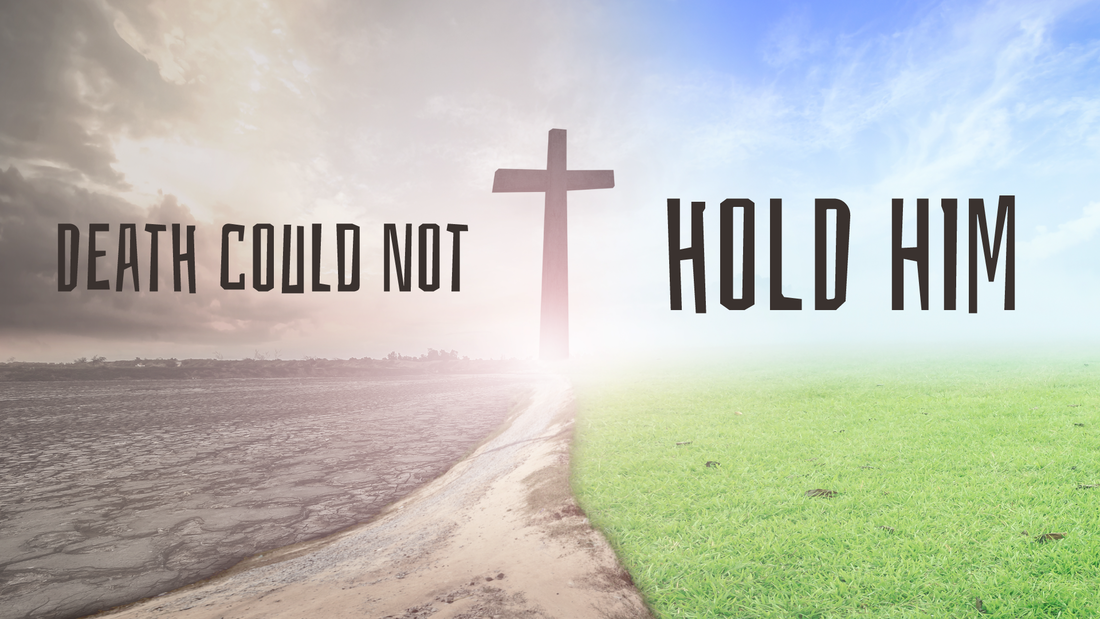
Hosea 6:1–3 predicts that the
People of Israel
would
Return to the Lord
after
A period of judgment
In that day, the people of Israel will say,
“Come,
and let us Return to
the Lord;
For He has Torn,
but
He will heal us;
He has stricken, but He will
bind us up
After two days He will revive us;
On the third day
He will Raise us up,
That we may live in His sight
Let us know,
Let us pursue
The knowledge of the Lord
His going forth is established
as the morning;
He will come to us like the rain,
Like the latter and former rain
to the earth”
(NKJV).
The “latter” and “former” rains are
called the
“Winter Rains” and “Spring Rains”
in the NIV.
The Lord had “torn” and “stricken”
His people—i.e.,
Hosea predicts that God will discipline them
(Hosea 6:1)—because they were
unfaithful to the
covenant
they had promised to keep
(Exodus 24:3, 7)
While the judgment would be
certain and severe,
God would demonstrate
His grace and restore the people
He would heal them
and bandage their wounds
(Hosea 6:1)
He would come to them
like
a refreshing and nourishing rain
(Hosea 6:3)
He would come
like
the latter and former rain,
which would seem to refer to
the
early rain
after planting and the
Later Rain at Harvest
Because of
God’s PROMISES,
His people could know
with
certainty that
God would keep
His word—that
He would
indeed come to them
as the
latter and former rain to
restore and refresh
While the context doesn’t specify when this
restoration would take place,
the passage seems to be pointing forward to
the salvation
that
would be provided through
the Messiah:
God would revive them after two days
and raise them up on the third day
(Hosea 6:2).
This prophecy seems to correlate directly with the events of
Jesus’ death, as He died, was buried,
and then
rose again on the third day
(see 1 Corinthians 15:1, 3–4). Paul mentions that
Christ’s resurrection on the
third day
was “according to the Scriptures”
(or writings)
While there may have been a written gospel account by the time Paul wrote his first letter to the Corinthians (Matthew and Mark may have written by that time), Paul is probably referring to the Hebrew Scriptures and may have had Hosea 6:2 in mind.
If Hosea’s prophecy of revival in the two days and raising on the third day (Hosea 6:2) is pointing forward to the death, burial, and resurrection of the Messiah, then the immediately following context that God would visit the people of Israel as the latter and former rain is likely also
a picture of how
refreshing and nourishing
that
event would be for
the people
under God’s judgment
In Hosea’s time, there was coming a somber judgment because of the people’s disloyalty to God and their transgressing of the covenant. But there was also a coming day of restoration for Judah (Hosea 6:11). God would come to the people as latter and former rain.
When God restores the people of Israel, He first deals with their sin problem.
The Messiah
would die as a sacrifice to pay for sins;
thus, the nation
would no longer be in bondage to the
Law of Moses
(the Old Covenant)
or the consequences of breaking that covenant
God would forgive their sins as part of a
New Covenant (Jeremiah 31:31)
That
Blessing of Forgiveness
from Sin
through the
Sacrifice of the Messiah
would be not just for one nation
but for
all the families of the earth
(Genesis 12:3b)
The Messiah
is the
latter and former rain
for
Israel and Judah
(Hosea 6:3)
He is the
Water of Life
for all who
would believe in Him
(John 4:13–14)
Hosea 6:1–3 predicts that the
People of Israel
would
Return to the Lord
after
A period of judgment
In that day, the people of Israel will say,
“Come,
and let us Return to
the Lord;
For He has Torn,
but
He will heal us;
He has stricken, but He will
bind us up
After two days He will revive us;
On the third day
He will Raise us up,
That we may live in His sight
Let us know,
Let us pursue
The knowledge of the Lord
His going forth is established
as the morning;
He will come to us like the rain,
Like the latter and former rain
to the earth”
(NKJV).
The “latter” and “former” rains are
called the
“Winter Rains” and “Spring Rains”
in the NIV.
The Lord had “torn” and “stricken”
His people—i.e.,
Hosea predicts that God will discipline them
(Hosea 6:1)—because they were
unfaithful to the
covenant
they had promised to keep
(Exodus 24:3, 7)
While the judgment would be
certain and severe,
God would demonstrate
His grace and restore the people
He would heal them
and bandage their wounds
(Hosea 6:1)
He would come to them
like
a refreshing and nourishing rain
(Hosea 6:3)
He would come
like
the latter and former rain,
which would seem to refer to
the
early rain
after planting and the
Later Rain at Harvest
Because of
God’s PROMISES,
His people could know
with
certainty that
God would keep
His word—that
He would
indeed come to them
as the
latter and former rain to
restore and refresh
While the context doesn’t specify when this
restoration would take place,
the passage seems to be pointing forward to
the salvation
that
would be provided through
the Messiah:
God would revive them after two days
and raise them up on the third day
(Hosea 6:2).
This prophecy seems to correlate directly with the events of
Jesus’ death, as He died, was buried,
and then
rose again on the third day
(see 1 Corinthians 15:1, 3–4). Paul mentions that
Christ’s resurrection on the
third day
was “according to the Scriptures”
(or writings)
While there may have been a written gospel account by the time Paul wrote his first letter to the Corinthians (Matthew and Mark may have written by that time), Paul is probably referring to the Hebrew Scriptures and may have had Hosea 6:2 in mind.
If Hosea’s prophecy of revival in the two days and raising on the third day (Hosea 6:2) is pointing forward to the death, burial, and resurrection of the Messiah, then the immediately following context that God would visit the people of Israel as the latter and former rain is likely also
a picture of how
refreshing and nourishing
that
event would be for
the people
under God’s judgment
In Hosea’s time, there was coming a somber judgment because of the people’s disloyalty to God and their transgressing of the covenant. But there was also a coming day of restoration for Judah (Hosea 6:11). God would come to the people as latter and former rain.
When God restores the people of Israel, He first deals with their sin problem.
The Messiah
would die as a sacrifice to pay for sins;
thus, the nation
would no longer be in bondage to the
Law of Moses
(the Old Covenant)
or the consequences of breaking that covenant
God would forgive their sins as part of a
New Covenant (Jeremiah 31:31)
That
Blessing of Forgiveness
from Sin
through the
Sacrifice of the Messiah
would be not just for one nation
but for
all the families of the earth
(Genesis 12:3b)
The Messiah
is the
latter and former rain
for
Israel and Judah
(Hosea 6:3)
He is the
Water of Life
for all who
would believe in Him
(John 4:13–14)
In his first letter to the
Corinthians,
Paul emphasizes the
future RESURRECTION
of
believers
from the DEAD
There were some who
denied the reality of the future
resurrection,
and Paul defends the
TRUTH
to the believers in
Corinth who had been deceived
by that false teaching
Paul explains that the
resurrection of believers
in
Christ is assured
because
Jesus Christ Himself
rose
from the dead
(1 Corinthians 15:13)
Paul then looks forward to the
second coming
of
Christ,
when He will return
with the
resurrected SAINTS
and at which time
He will destroy
“all dominion, authority and power
For he must reign
until
he has put all his enemies
under his feet
The Last Enemy
to be
destroyed is death”
(1 Corinthians 15:24–26)
The enemies of God that will be destroyed
include Satan,
who by his deceit and lies ruined
Adam and Eve
and all humanity
after them
All human beings inherit the sin nature from Adam (Romans 5:12), and all
must live in bondage to sin unless delivered by Christ from their sinful state.
Satan destroyed the innocence of
Adam and Eve when he tempted them to rebel against God.
But Jesus, who has
Redeemed the Elect,
will have the
final victory over Satan
and his demons
when they are destroyed forever
(Revelation 20:1–10)
Another enemy to be destroyed is sin, which all human beings are guilty of committing. On the cross, Jesus saved His people from the punishment and the power of sin. Believers need no longer fear God’s wrath against their sin because Jesus took the punishment sinners deserve. He also delivered believers from the power of sin, granting us the ability to resist sin through the power of the Holy Spirit who dwells within and whose power is greater than the power of sin. One day, sin will be completely destroyed, and believers will no longer live in the presence of sin. The apostle John describes the New Jerusalem, which will come down from heaven and be entirely free from sin: “Nothing impure will ever enter it, nor will anyone who does what is shameful or deceitful, but only those whose names are written in the Lamb’s book of life” (Revelation 21:27).
Romans 6:23 says,
“For the wages of sin is death, but the gift of God is eternal life in Christ Jesus our Lord.”
At its core, sin is rebellion against God.
Our sin separates us from God, the
creator and sustainer of life.
Jesus said,
“I am the way and the truth and the life”
(John 14:6a).
God is known as the great “I AM.” Life is in God.
So, when we sin and become separated from God,
we become separated from true life.
Therefore, perforce, we experience death.
Three points of clarification are needed:
First, sin does not necessarily result in physical death right away.
Romans 6 is not telling us that when we sin we will physically die.
Rather, it is referring to
Spiritual Death
Everything Is Meaningless
The words of the Teacher,
son of David, king in Jerusalem:
“Meaningless! Meaningless!”
says the Teacher.
“Utterly meaningless!
Everything is meaningless.”
What do people gain from all their labors
at which they toil under the sun?
Generations come and generations go,
but the earth remains forever.
The sun rises and the sun sets,
and hurries back to where it rises.
The wind blows to the south
and turns to the north;
round and round it goes,
ever returning on its course.
All streams flow into the sea,
yet the sea is never full.
To the place the streams come from,
there they return again.
All things are wearisome,
more than one can say.
The eye never has enough of seeing,
nor the ear its fill of hearing.
What has been will be again,
what has been done will be done again;
there is nothing new under the sun.
Is there anything of which one can say,
“Look! This is something new”?
It was here already, long ago;
it was here before our time.
No one remembers the former generations,
and even those yet to come
will not be remembered
by those who follow them.
Like the
Tree of Knowledge
of
Good and Evil
in the Garden,
where
Jesus the prophet was
crucified,
Knowledge of sin leads to
spiritual death,
In Faith in Christ Alone are
we Free from Sin
From Grace Alone,
the
Shedding of Blood
All have Sinned, not one is Righteous,
Grace plus Works is Meaningless,
and
Rejects the Message
of the Cross
First Corinthians 15:26
says that the
Last enemy
to be destroyed
is Death
Death
will be the last of all,
because it is the
“Wages of Sin”
(Romans 6:23)
“For the wages of sin is death,
but the GIFT of God
is
ETERNAL LIFE
in
Christ Jesus our Lord”
(Romans 6:23)
He has enabled us to be MINISTERS of
his
NEW COVENANT
This is a
covenant not of written laws,
but of the Spirit
The old written covenant
ends in death;
but under the
NEW covenant,
the
SPIRIT GIVES LIFE
and must continue to exist
until
sin has come to an end
and
Until we all come in the
unity of the faith,
and of the
knowledge of the Son of God,
unto a perfect man,
unto the measure
of the
stature of the fullness of Christ
in the MIND of Christ
Acquired through the holy spirit
Then I looked UP
and there before me was a man
with a measuring line in his hand!
I asked, "Where are you going?"
He answered me,
"To measure Jerusalem,
to find out
how
wide and how long it is."
As believers in Jesus Christ,
we are now the
Temple of the Holy Spirit
"that Christ may dwell
in your
Hearts through faith”
(Ephesians 3:17)
In Christ, there are
No More
measurements
of God's presence.
It cannot be contained
No width,
NO
length, no height or depth
of God's LOVE
can be
measured
There is neither
Jew nor Greek,
there is neither slave nor free,
there is
neither male nor female;
for you are
all one in Christ Jesus
Saved by Grace alone,
through Faith alone
Lamentations 3:22–33
The steadfast love of the LORD
never ceases;
His MERCIES never come to an end;
23 they are new mevery morning;
ngreat is your faithfulness.
24 o“The LORD is my portion,” says my soul,
k“therefore I will hope in him.”
25 The LORD is good to those who pwait for him,
to the soul who seeks him.
26 qIt is good that one should wait quietly
for the salvation of the LORD.
27 rIt is good for a man that he bear
the yoke sin his youth.
28 Let him tsit alone in silence
when it is laid on him;
29 ulet him put his mouth in the dust--
there may yet be hope;
30 vlet him give his cheek to the one who strikes,
and let him be filled with insults.
31 wFor the Lord will not
cast off forever,
32 but, though he xcause grief, yhe will have compassion
zaccording to the abundance of his steadfast love;
33 afor he does not afflict from his heart
or bgrieve the children of men.
“All these with one accord
were devoting themselves to prayer,
together with the
women and Mary the mother of Jesus,
and his brothers”
(Acts 1:14, ESV)
To be in one accord communicates
being
one in heart and mind
This kind of
oneness of heart, mind and soul
in the Body of Christ
is only
possible through the
Holy Spirit’s enabling
(Ephesians 4:1–6)
It is a GIFT of God’s GRACE
(Romans 12:3–13)
Galatians 2:24
“the law
was our schoolmaster
to
bring us unto Christ,
that we
might be
justified by faith.”
By functioning like a mirror (James 1:23),
God's law reveals to us our sinfulness
since
“by the law is the knowledge of sin”
(Romans 3:20)
No One Is Righteous
What then? Are we Jews
any better off?
NO, NOT AT ALL
For we have already charged that all,
both Jews and Greeks, are under sin,
as it is written:
“None is righteous, no, not one;
no one understands;
no one seeks for God.
All have turned aside;
together they have become worthless;
no one does good,
not even one.”
“Their throat is an open grave;
they use their tongues to deceive.”
“The venom of asps is under their lips.”
“Their mouth is full of curses and bitterness.”
“Their feet are swift to shed blood;
in their paths are ruin and misery,
and the way of peace they have not known.”
“There is no fear of God before their eyes.”
Now we know that whatever the law says it speaks
to those who are under the law,
so that every mouth may be stopped, and the whole
world may be held accountable to God.
For by works of the law no human being
will be justified in his sight,
since through the law comes knowledge of sin
Romans 3:23
for all have sinned and fall short
of the glory of God,
and all are justified freely by his grace
through the redemption that
came by Christ Jesus.
For all have sinned
This is the general character of all mankind; all have sinned in Adam,
are guilty by his sin, polluted with it, and condemned for it;
all are sinners in themselves, and by their own actual transgressions; this is the case of the whole world, and of all the men in it; not only of the Gentiles, but of the Jews, and the more righteous among them: hence there is no difference in the state and condition of men by nature; nor is there any reason from and in themselves, why God saves one and not another; nor any room to despair of the grace and righteousness of Christ, on account of persons being, in their own view, the worst of sinners:
and
hence it is, that they are all
come short of the glory of God;
either of glorifying of God; man was made for this purpose, and was capable of it, though now through sin incapable; and it is only by the grace of God that he is enabled to do it: or of glorying: before him; sin has made him infamous, and is his shame; by it he has forfeited all external favours, and has nothing of his own to glory in; his moral righteousness is no foundation for boasting, especially before God: or of having glory from God; the most pure and perfect creature does not of itself deserve any glory and praise from God; good men, in a way of grace, will have praise of God; but sinners can never expect any on their own account: or of the glorious grace of God, as sanctifying and pardoning grace, and particularly the grace of a justifying righteousness; man has no righteousness, nor can he work out one; nor will his own avail, he wants a better than that: or of eternal glory; which may be called the glory of God, because it is of his preparing, what he calls persons to by his grace, and which of his own free grace he bestows upon them, and will chiefly lie in the enjoyment of him; now this is represented sometimes as a prize, which is run for, and pressed after; but men, through sinning, come short of it, and must of themselves do so for ever: or rather of the image of God in man, who is called
"The Image and Glory of God",
( 1 Corinthians 11:7 ) ,
which consisted externally in government over the creatures;
internally, in righteousness and holiness,
in wisdom and knowledge,
in the bias of his mind to that which is good,
and in power to perform it;
of all which he is come short, or deprived by sinning.
If the Law
is still binding on us today,
then it has
not yet accomplished its purpose
it has not
yet been fulfilled
If the Law, as a legal system,
is still
binding on us today,
then Jesus
was wrong in claiming
to fulfill it and
His sacrifice
on the
Cross was insufficient
to Save
Thank God, Jesus fulfilled the whole Law and now grants us His righteousness as a free gift. “Know that a person is not justified by the works of the law, but by faith in Jesus Christ. So we, too, have put our faith in Christ Jesus that we may be justified by faith in Christ and not by the works of the law, because by the works of the law no one will be justified” (Galatians 2:16).
Death was the last of the enemies to come, and it will be the last to be destroyed. How will this happen? Those who are in Christ will be raised to eternal life in the presence of God and will die no more. Even unbelievers will live eternally in the lake of fire, and there will be no more physical death for them (Mark 9:48). Physical death is the last enemy to be destroyed, both for the righteous and the wicked.
The defeat
of
death by the God of Life
Proves the
doctrine of the resurrection
of the Dead
Death can only be destroyed by the resurrection of both the wicked and the righteous, who will die no more. If there is no resurrection, then death will still rule and people will be subject to it. The fact that death will be destroyed assures us of the resurrection. “When the perishable has been clothed with the imperishable, and the mortal with immortality, then the saying that is written will come true:
"Death has been
swallowed up in Victory’”
(1 Corinthians 15:54; cf. Isaiah 25:8)
The New Creation
is described
in 2 Corinthians 5:17:
“Therefore, if anyone is in Christ,
he is
Anew creation; the old has gone,
the
NEW has Come!”
Paul tells us that
all believers have died with Christ
and no longer live for themselves
Our lives are no longer worldly;
they are
Now Spiritual
Along with the old passing away,
“the new has come!”
Old, dead things are replaced
with New Things
Full of Spiritual Life
and the
Glory of God
The
Glory of God
is
the Beauty of
His Spirit
It is not an aesthetic beauty
or a material beauty,
but the beauty
that
emanates from His
character,
from all that He is
The glory of man—human dignity
and honor—fades
(1 Peter 1:24)
But the Glory of God,
which is manifested in
all His
attributes together,
Never passes away
It is ETERNAL
“Now the Lord is the Spirit,
and where the
SPIRIT of the Lord is,
there is FREEDOM
And we all,
with unveiled face,
BEHOLDING
the
GLORY of the Lord,
are being
TRANSFORMED
into the same Image
from one
degree of GLORY to another
For this comes from the Lord
WHO IS the Spirit"
Do All to the
Glory of God
“All things are lawful,” but not all things are helpful.
“All things are lawful,”
but not all things build up.
Let no one seek his own good, but the good
of his neighbor.
Eat whatever is sold in the meat market
without raising
any question on the ground of conscience.
For “the earth is the Lord's, and the fullness thereof.”
If one of the unbelievers invites you to dinner
and you are disposed to go,
eat whatever is set before you without
raising any question on the ground of conscience.
But if someone says to you, “This has been offered in sacrifice,”
then do not eat it,
for the sake of the one who informed you,
and for the sake of conscience--
I do not mean your conscience,
but his
For why should my liberty be
determined by someone else's conscience?
If I partake with thankfulness,
why am I denounced because of that for
which I give thanks?
So, whether you
eat or drink,
or
whatever you do,
do all to
The Glory of God
Give no offense
to
Jews or to Greeks
or to
The Church of God,
just as I try
to please everyone in
everything I do,
not seeking
my own advantage,
but that of many,
that they May be Saved
… So from
Now on We Regard
No One
According to the flesh
Although
We once regarded Christ
in this way,
we do so no longer
therefore
if anyone
is in
Christ, he is
ANEW CREATION
The old has passed away
Behold, the NEW has come!
All this is from God, who
reconciled us
to Himself through Christ
and Gave us the
Ministry of Reconciliation:…
